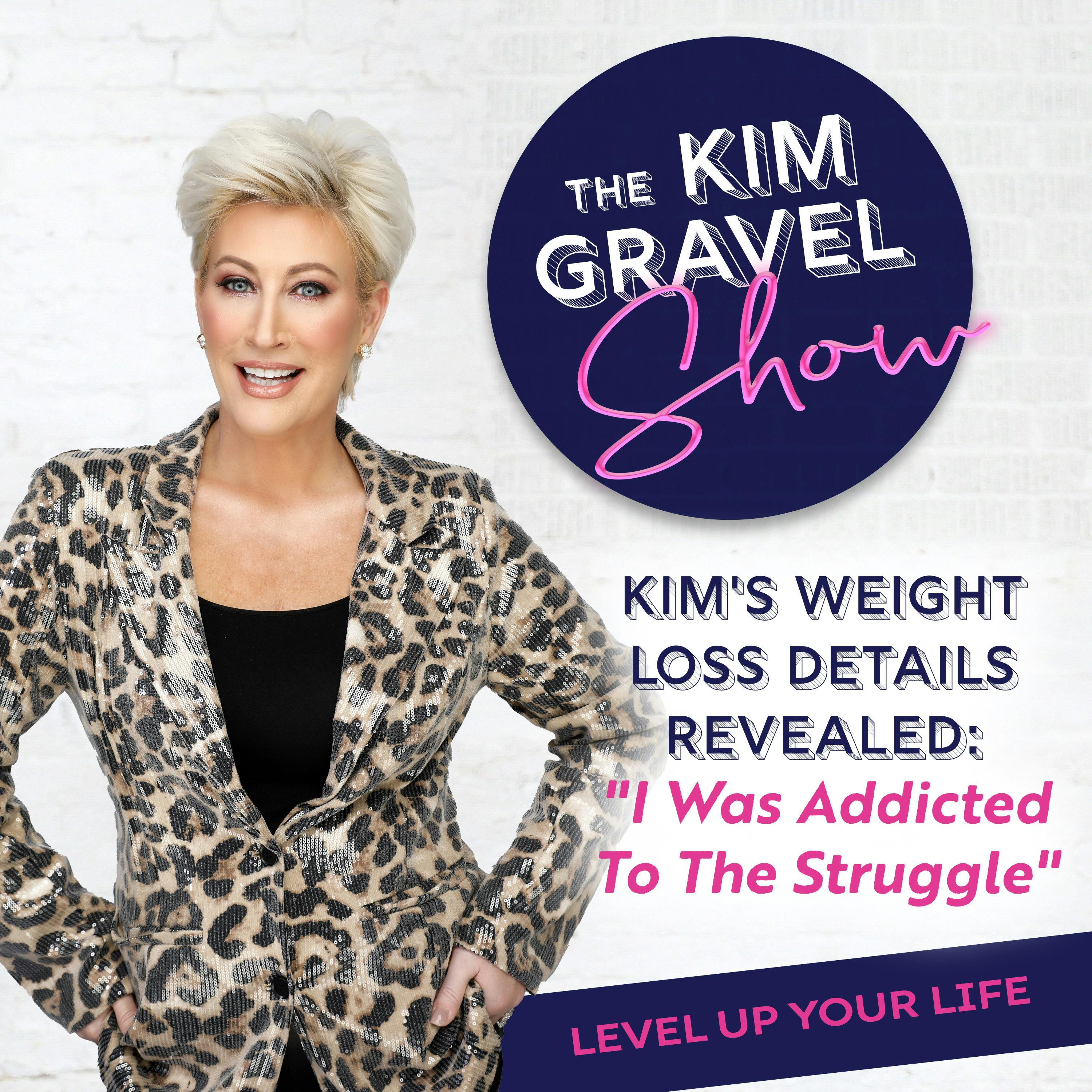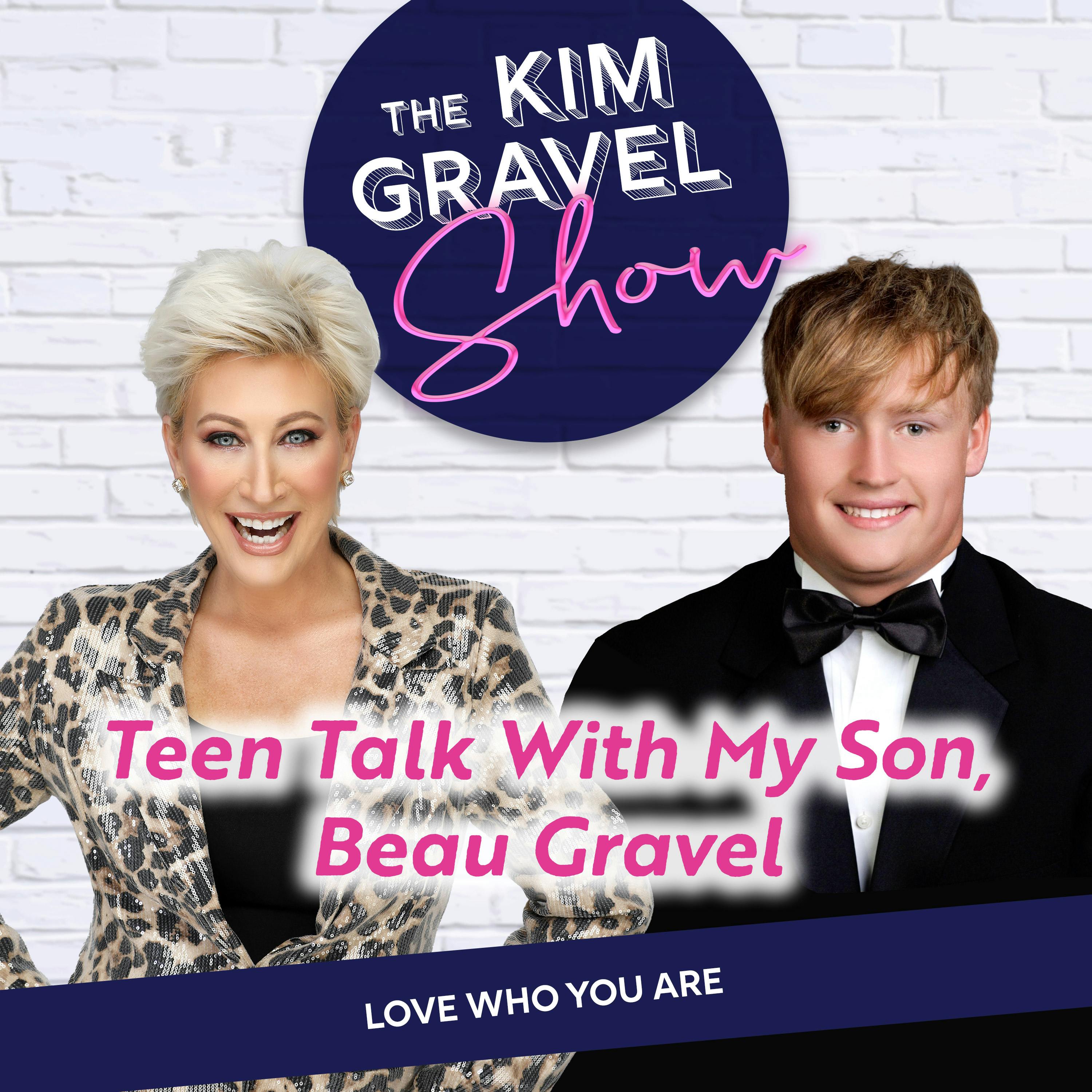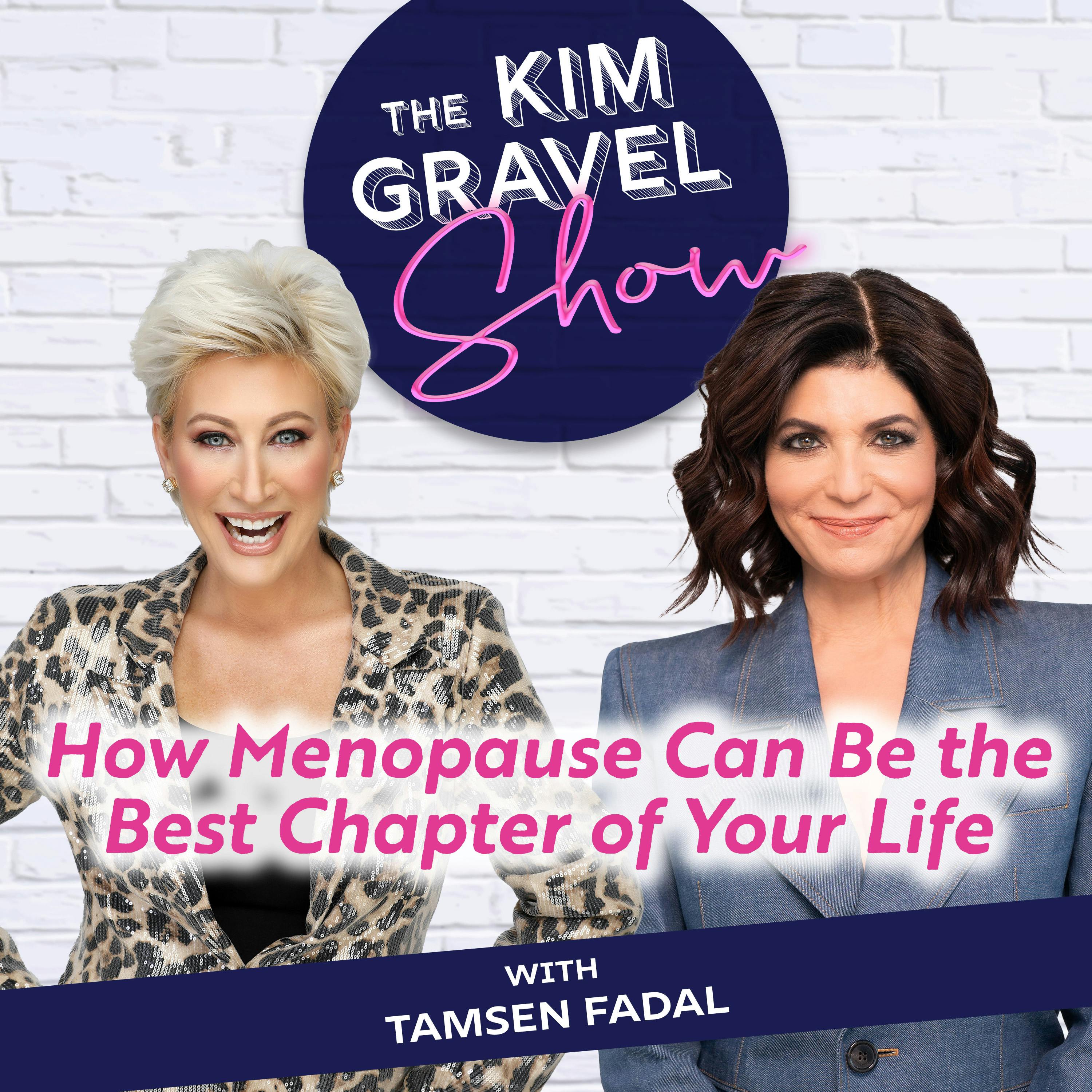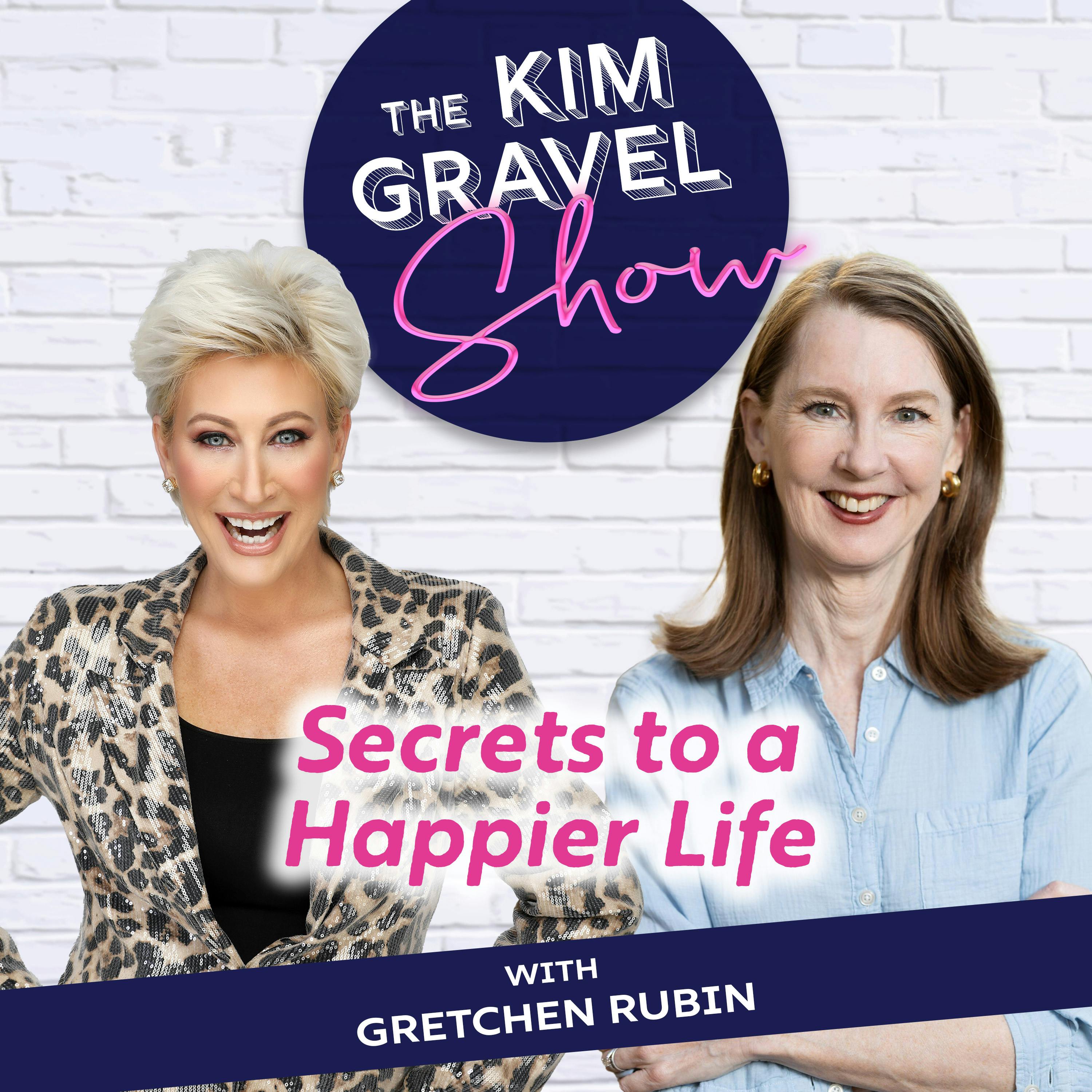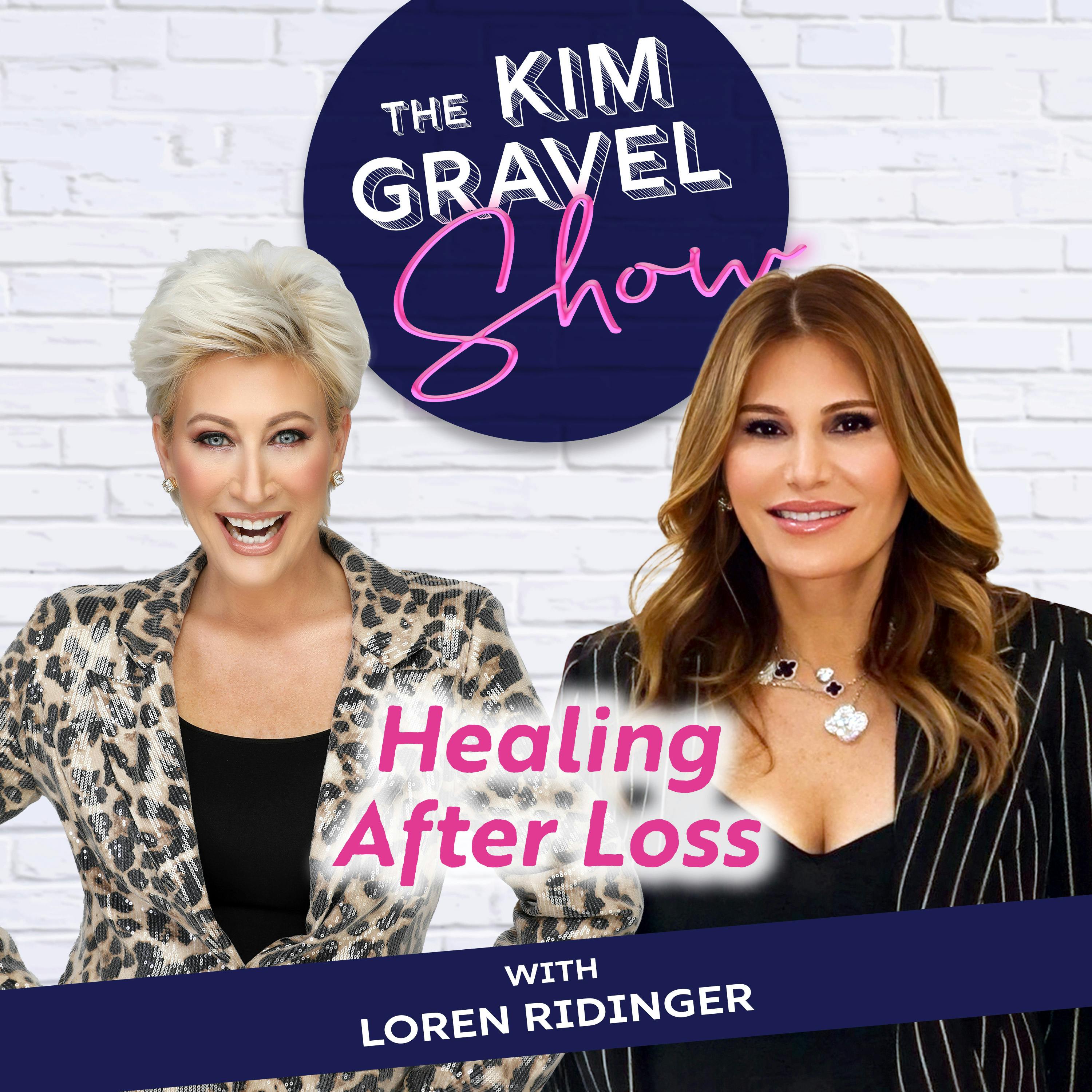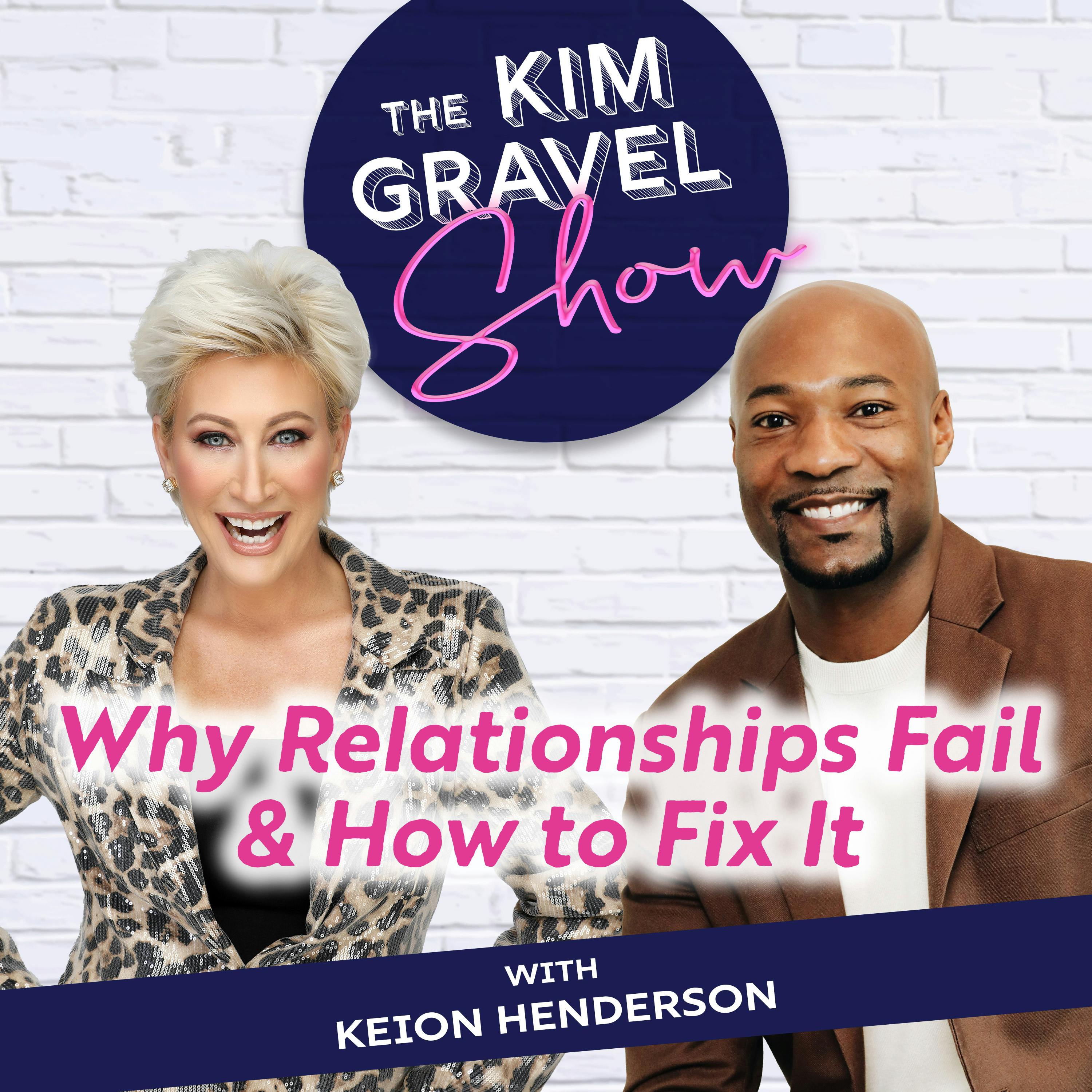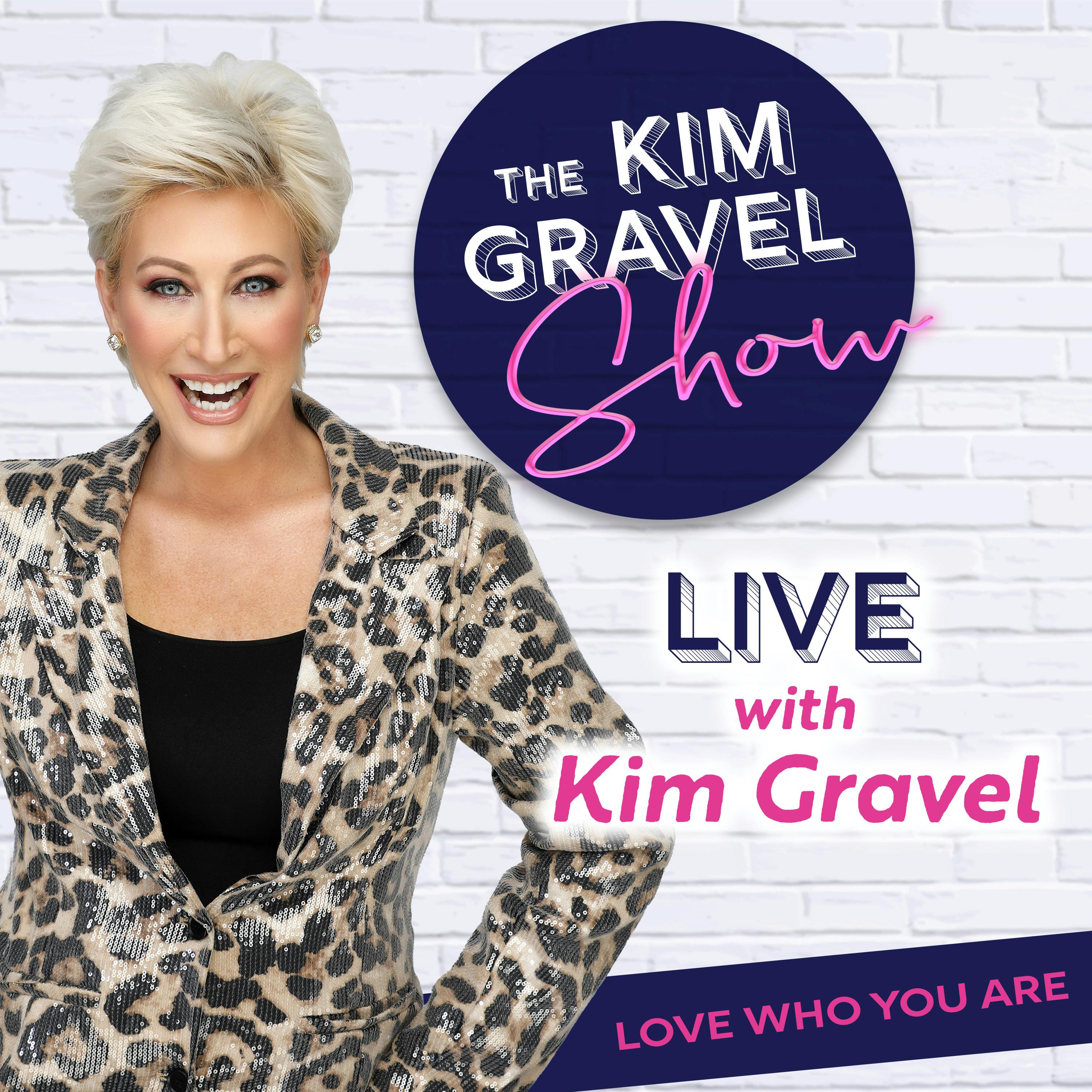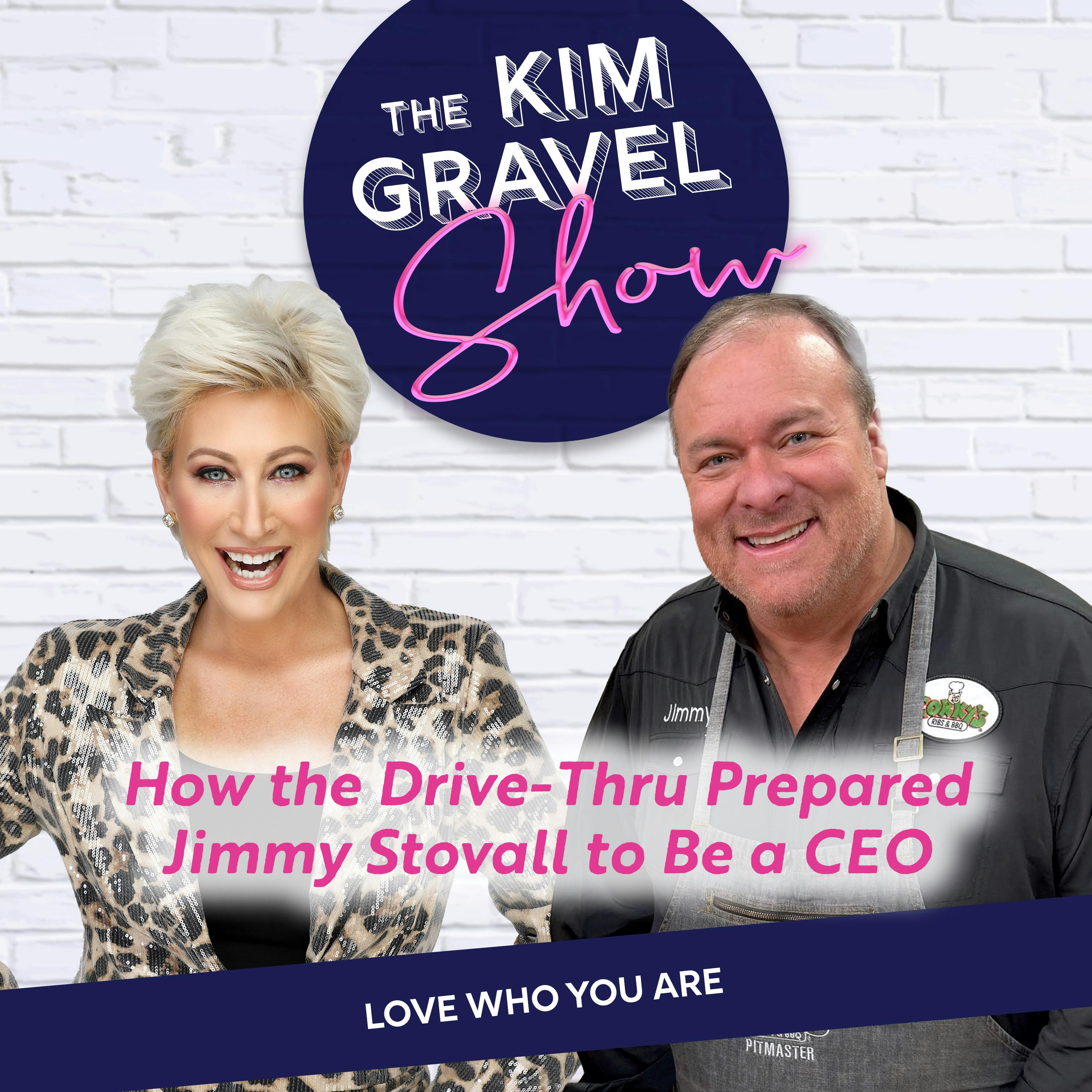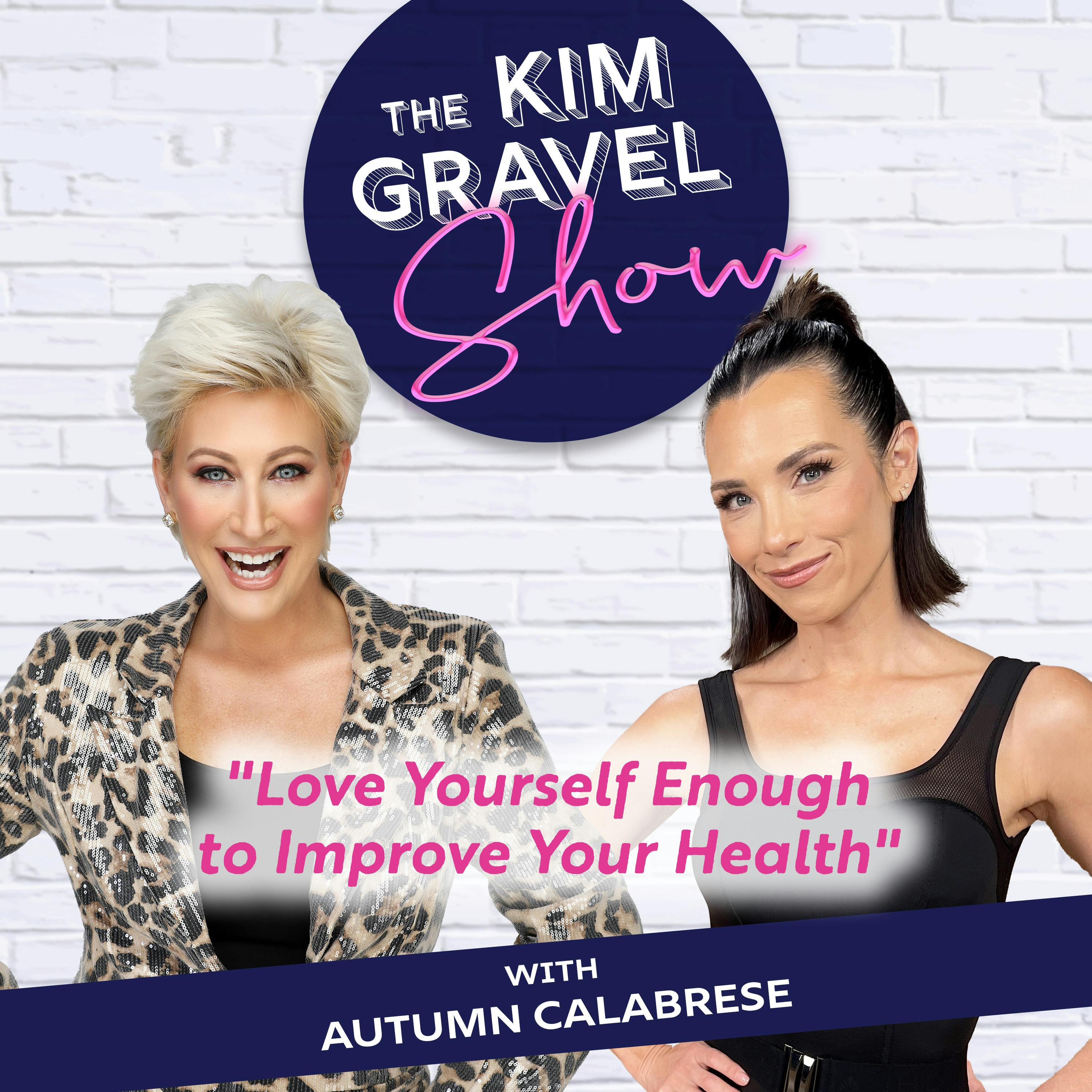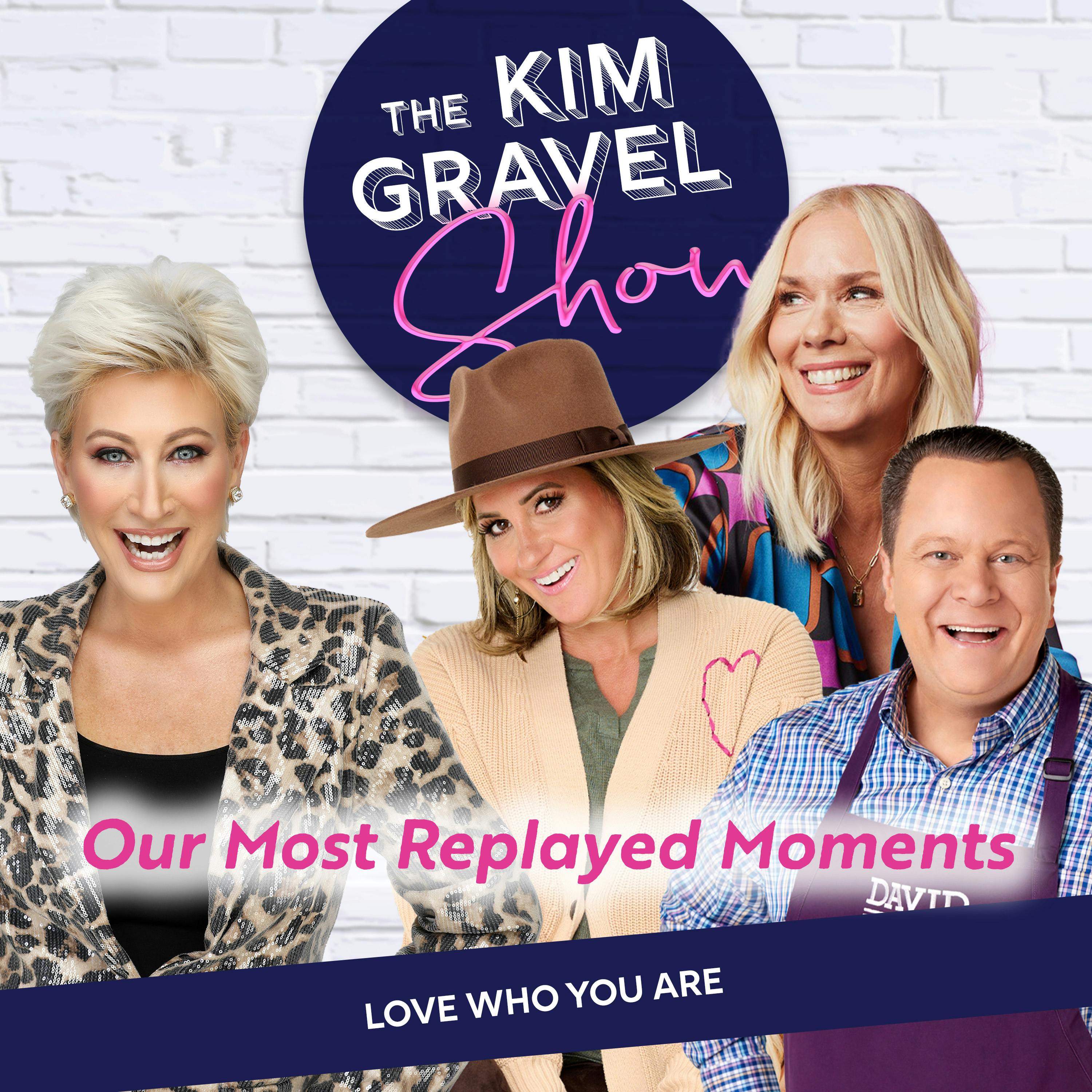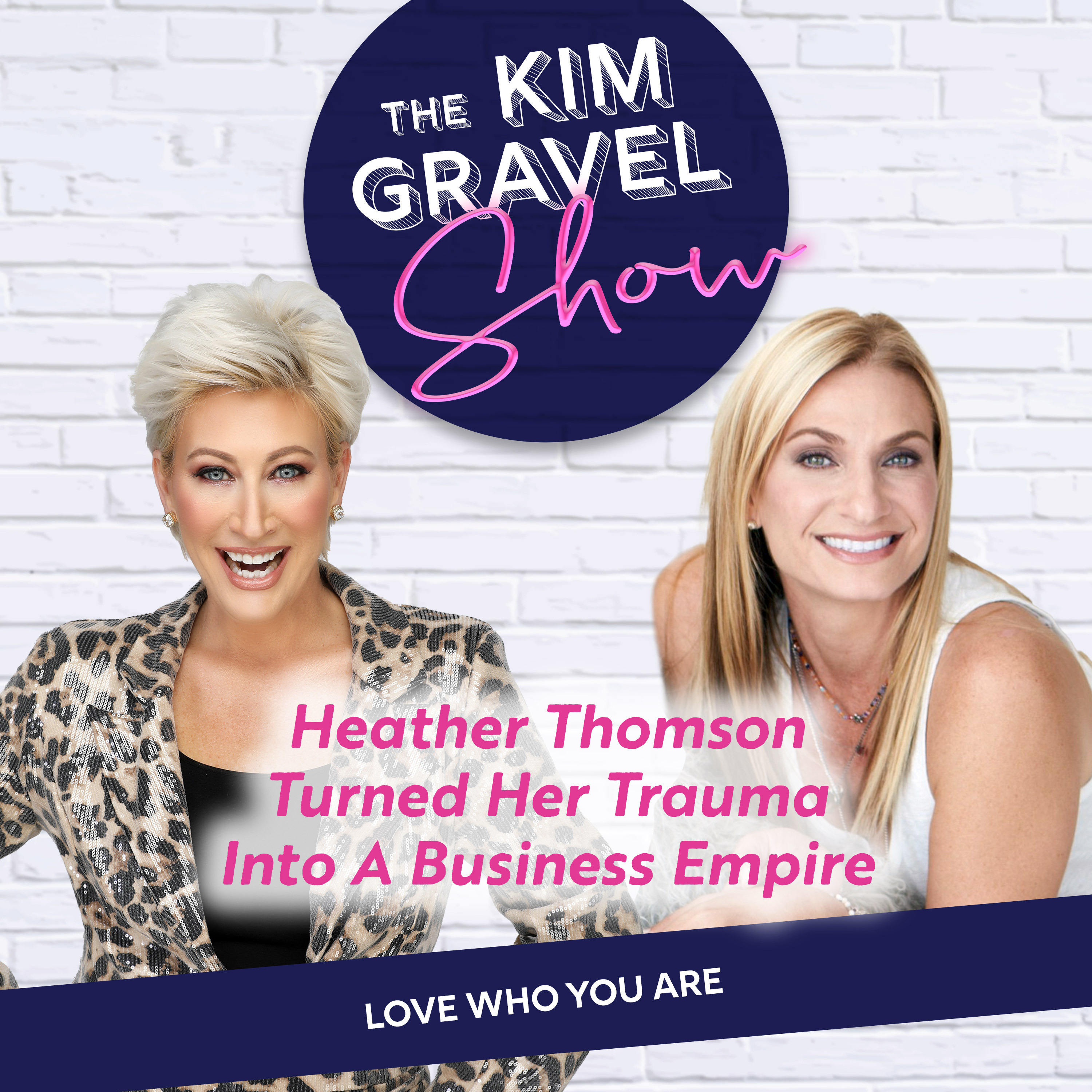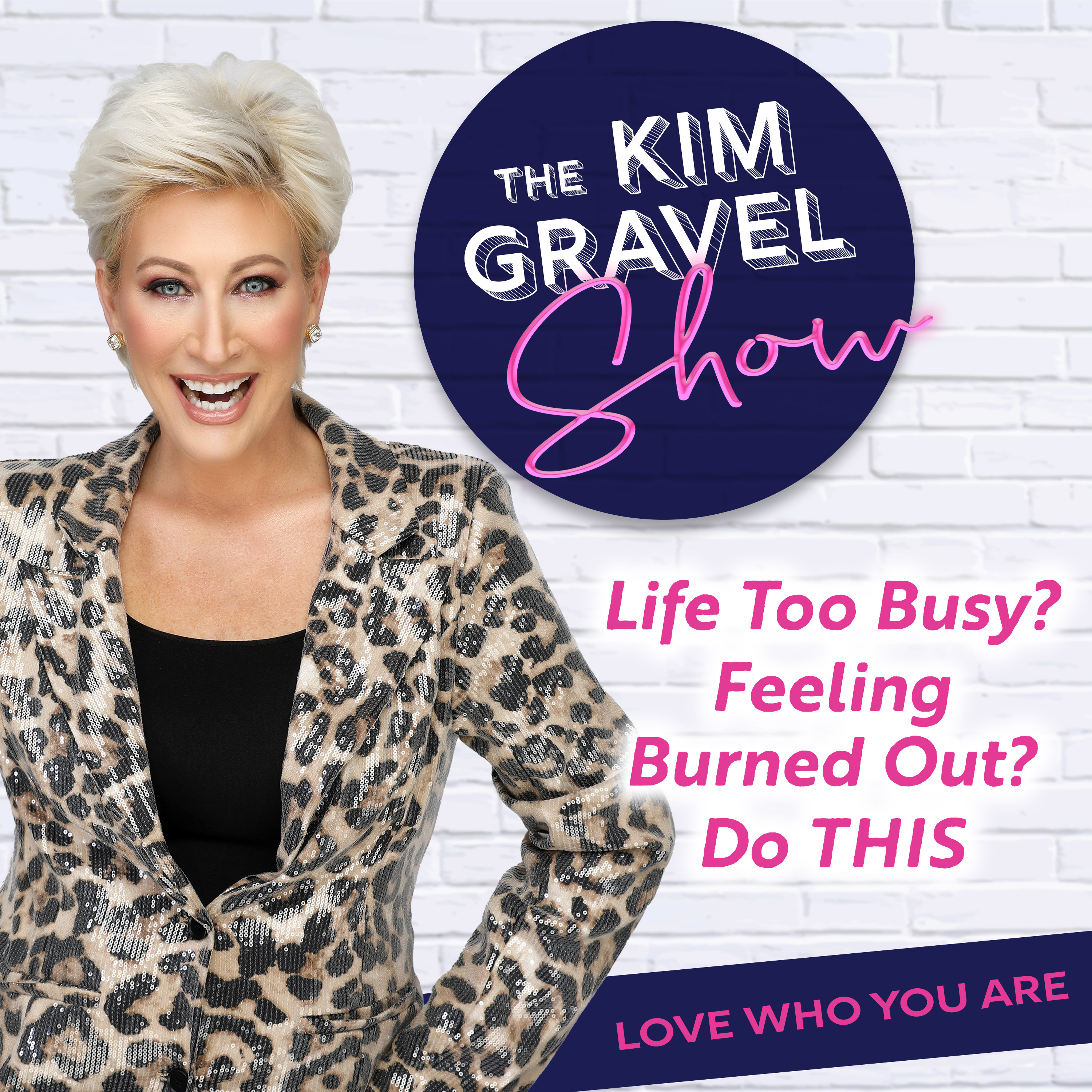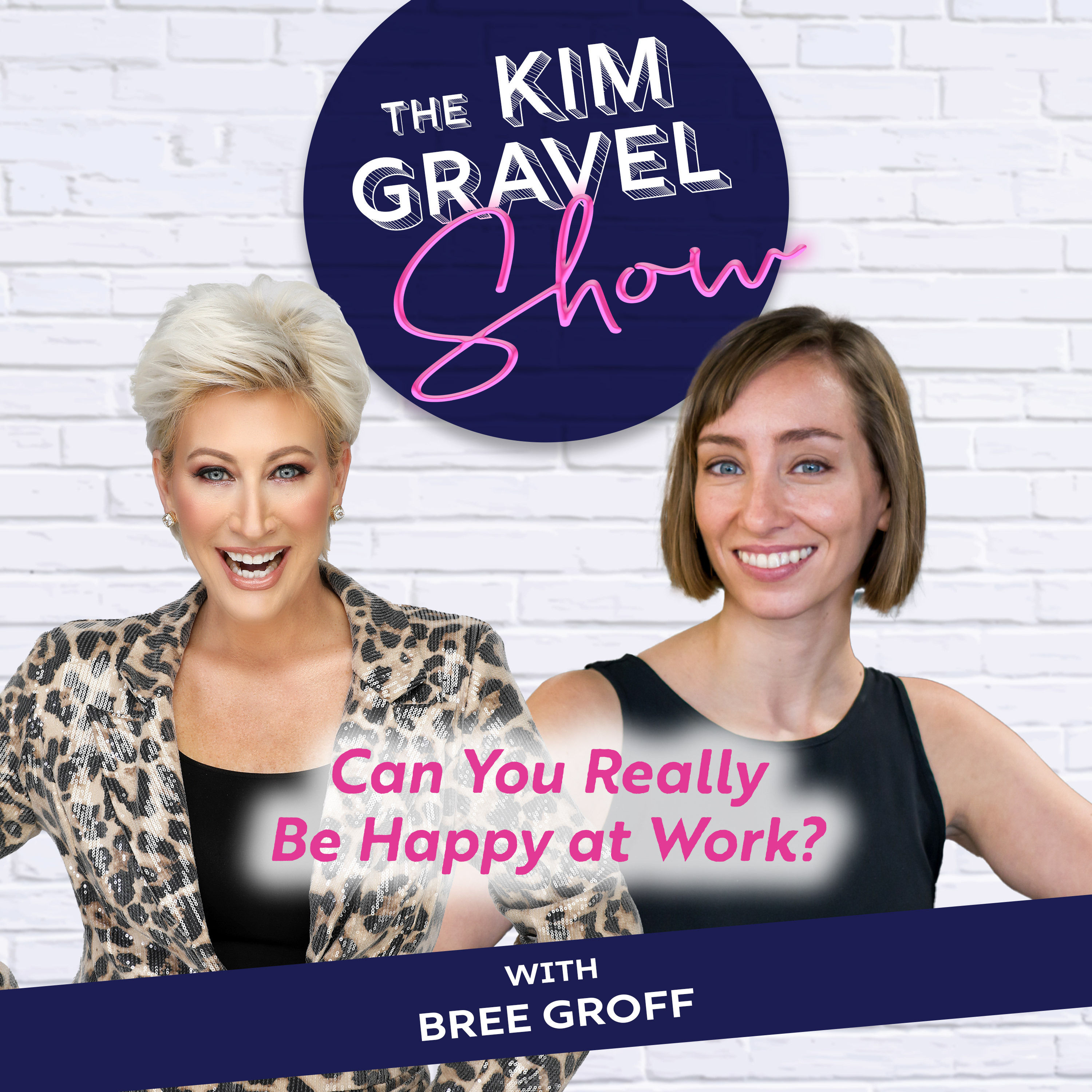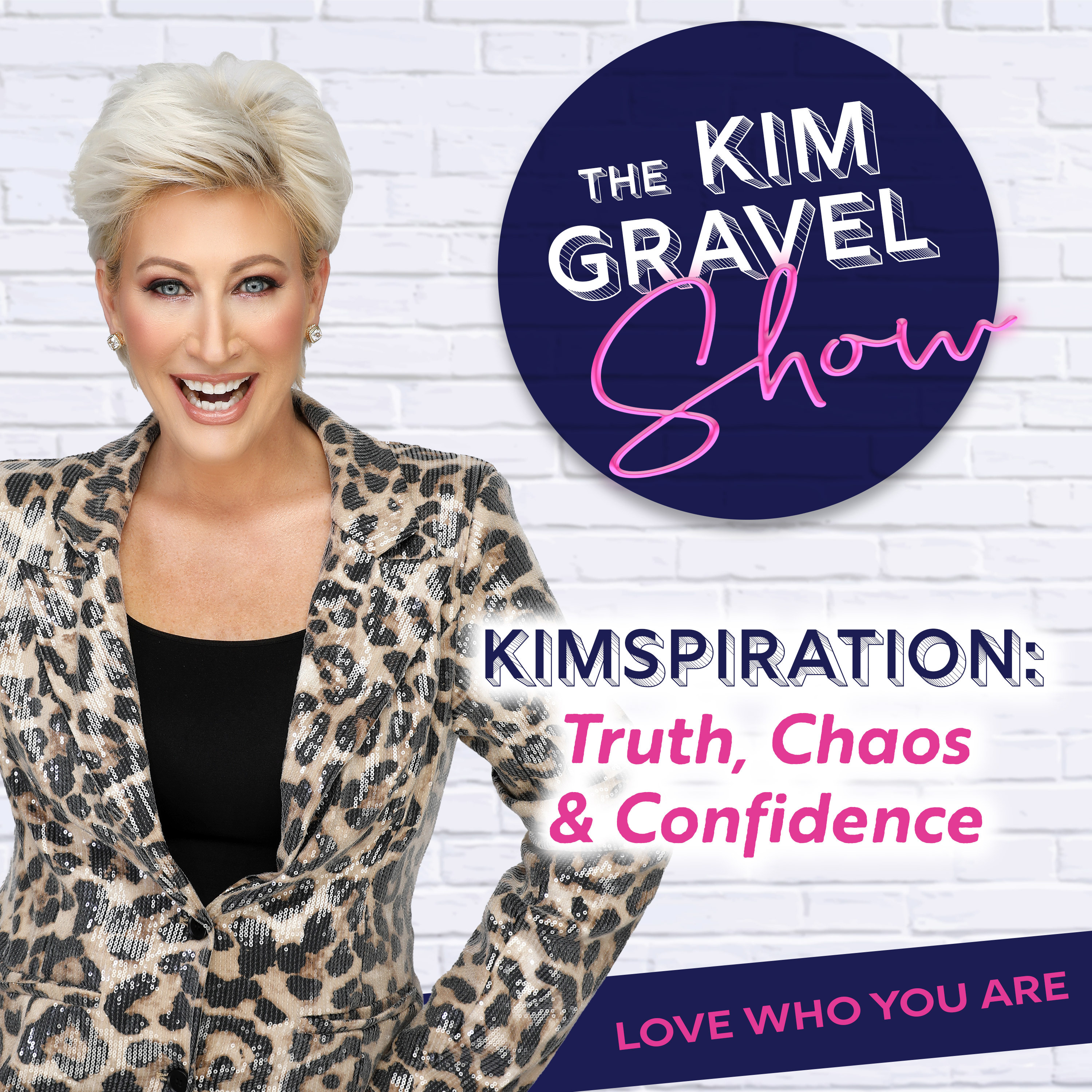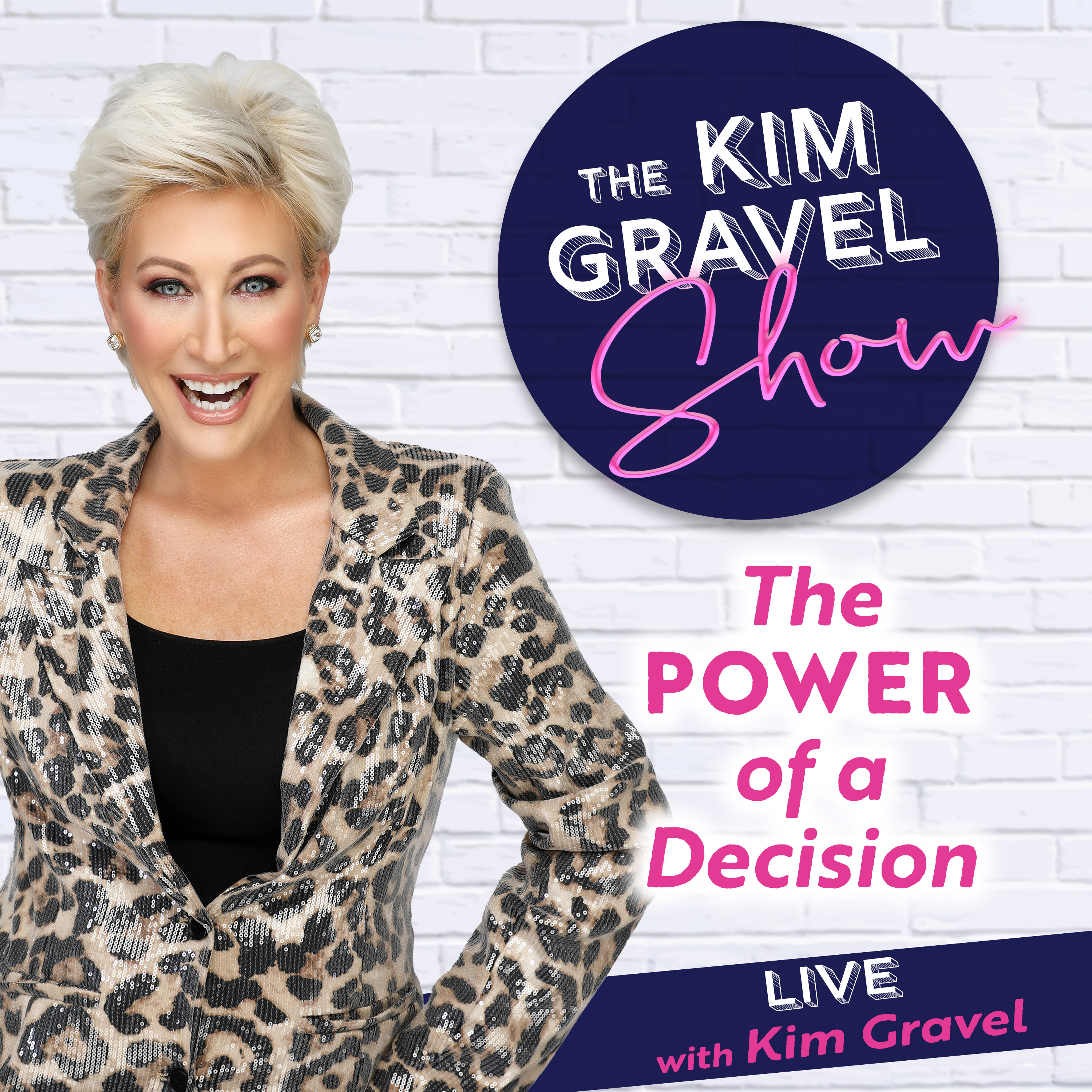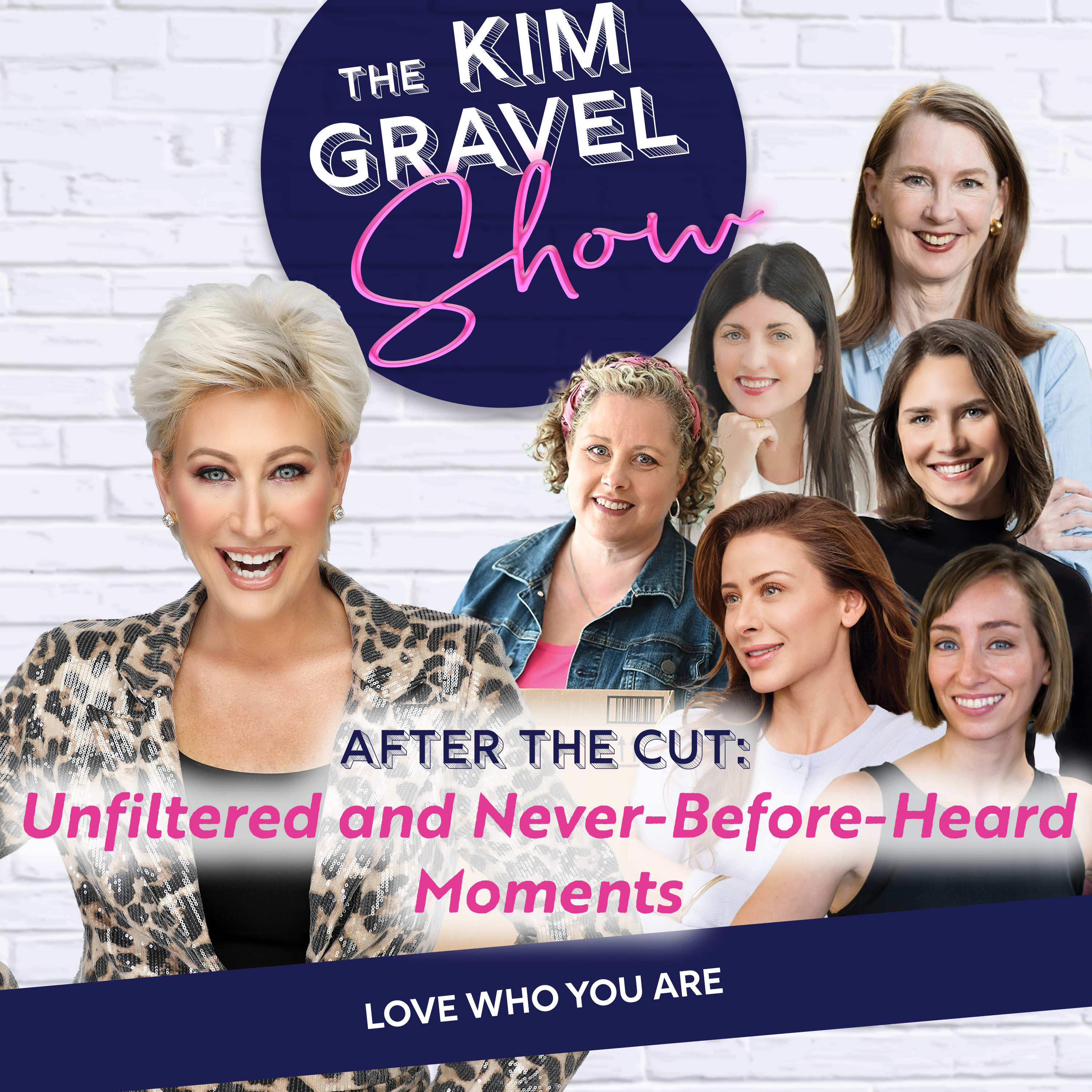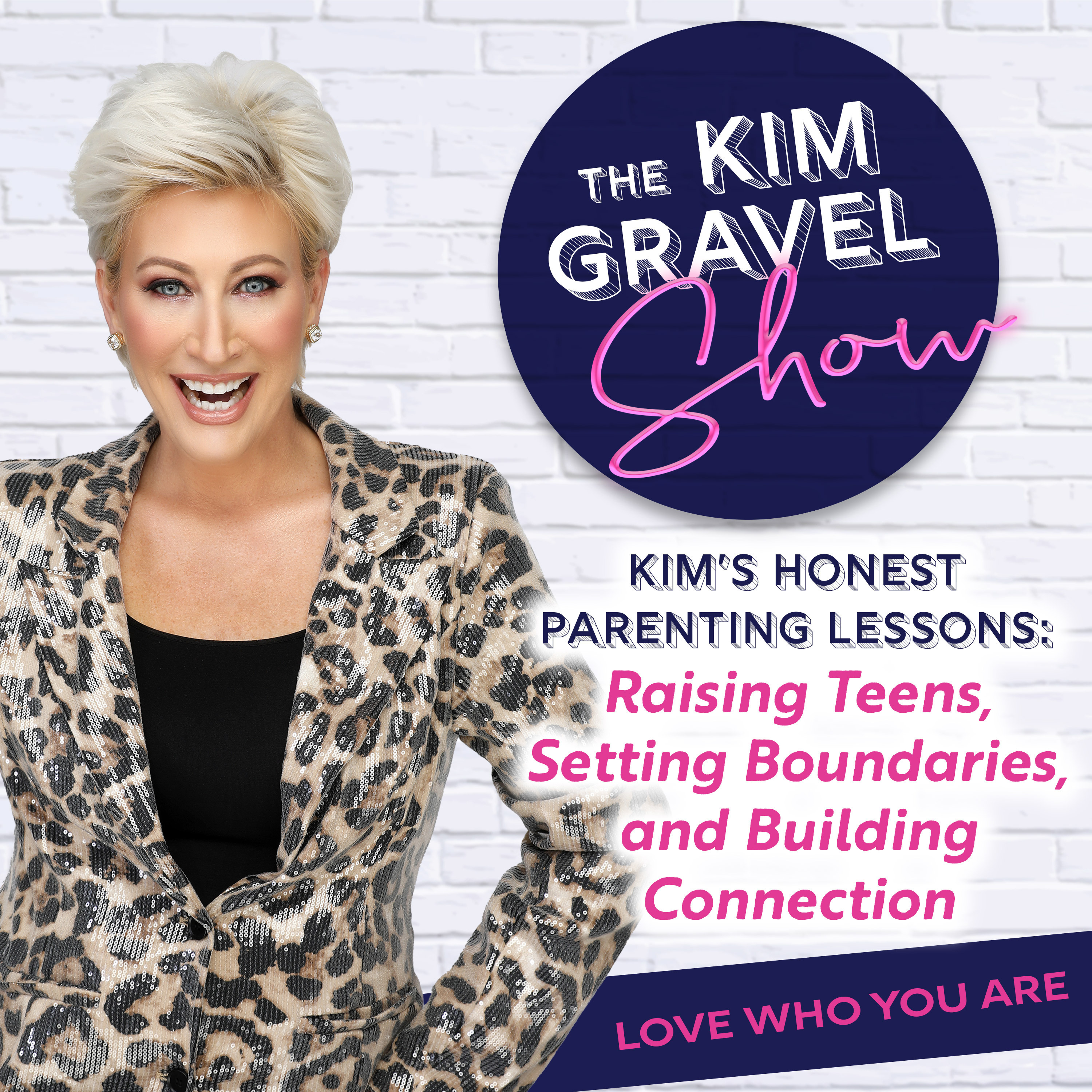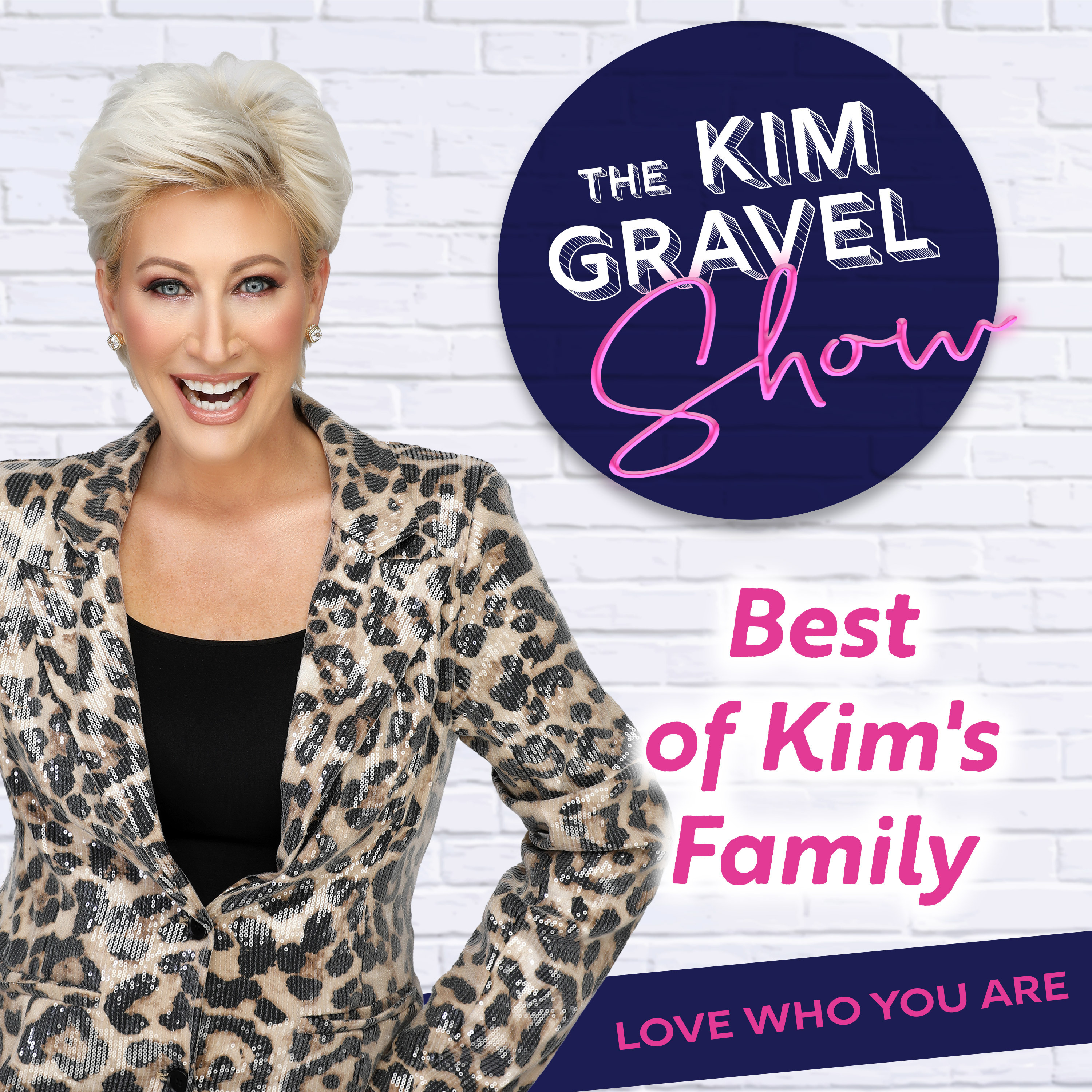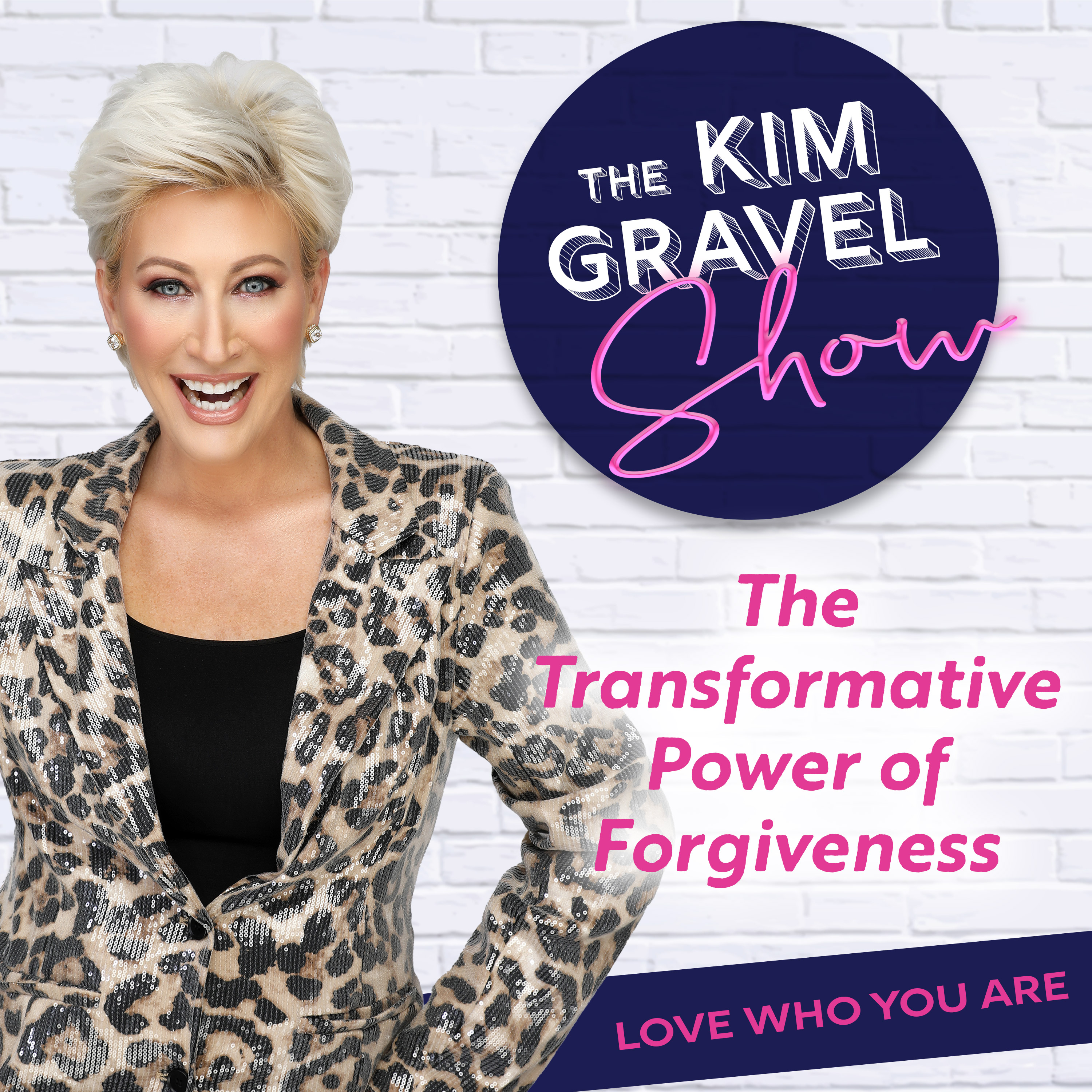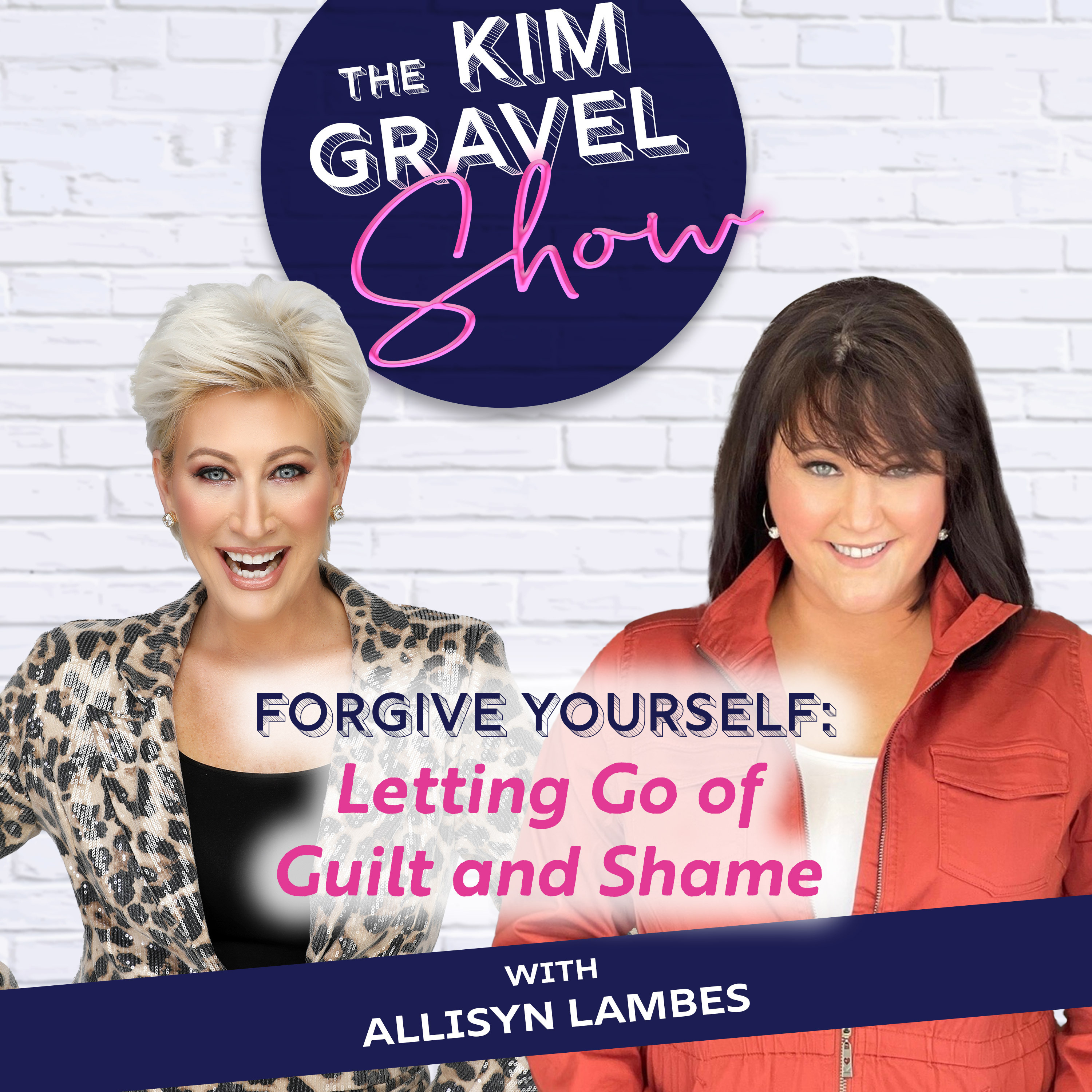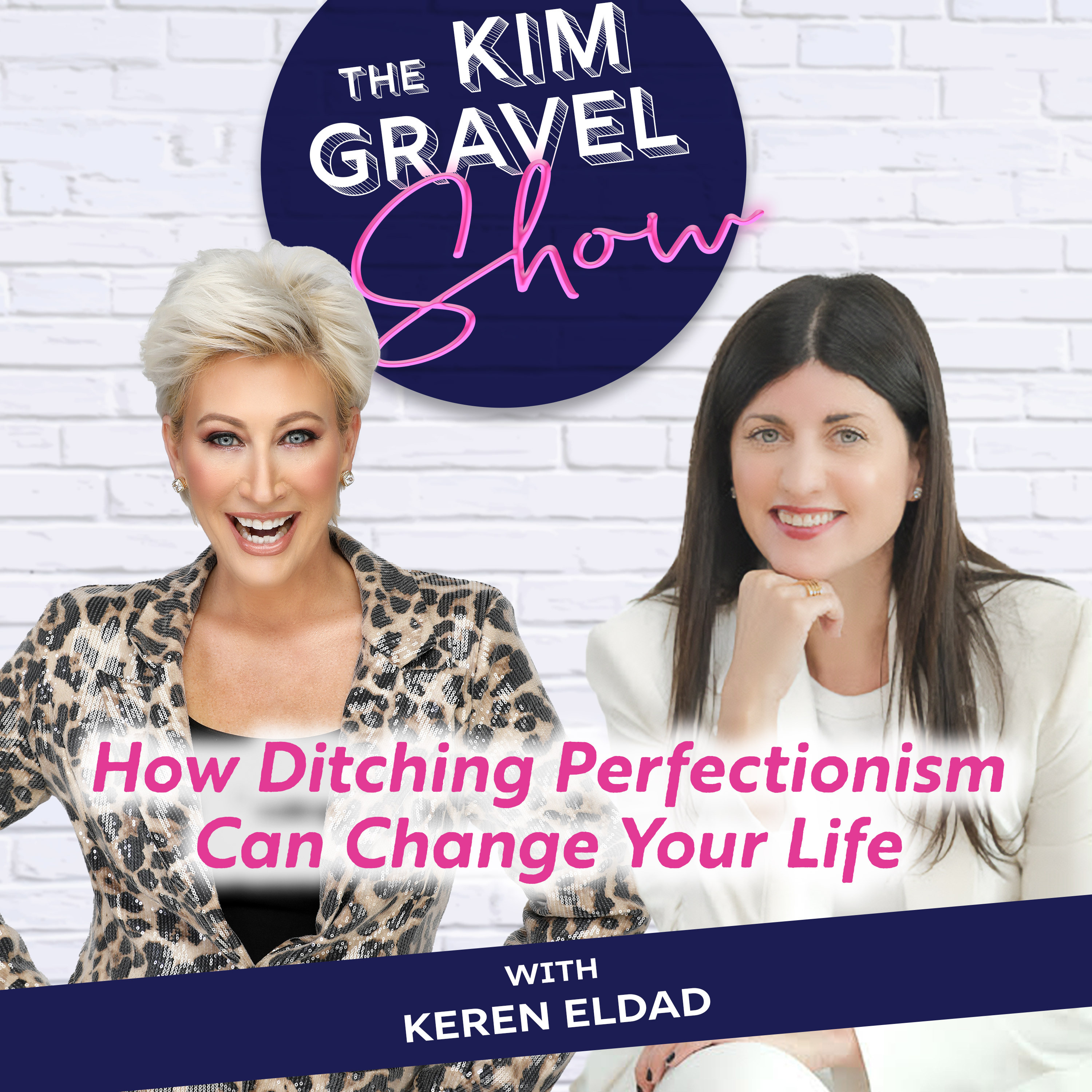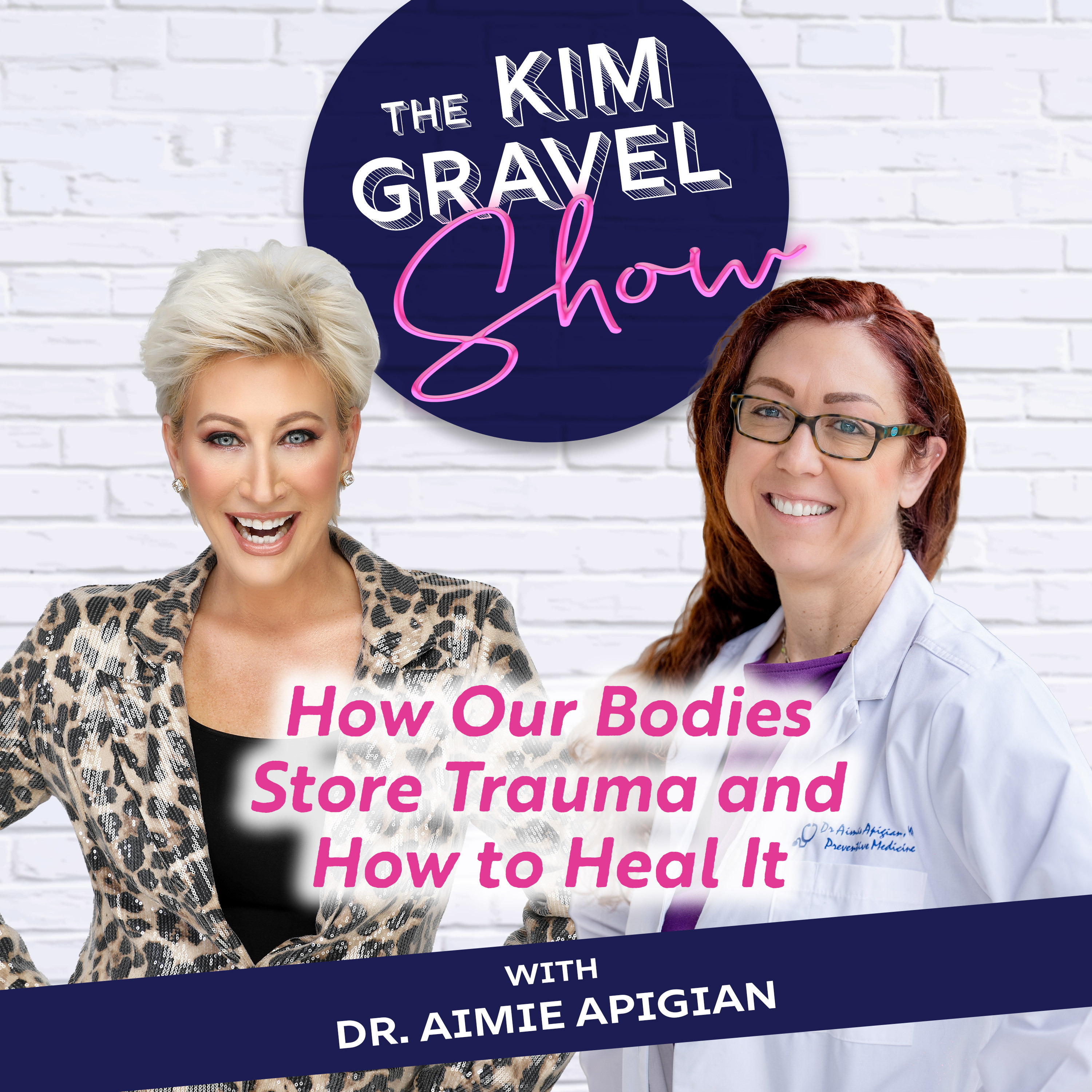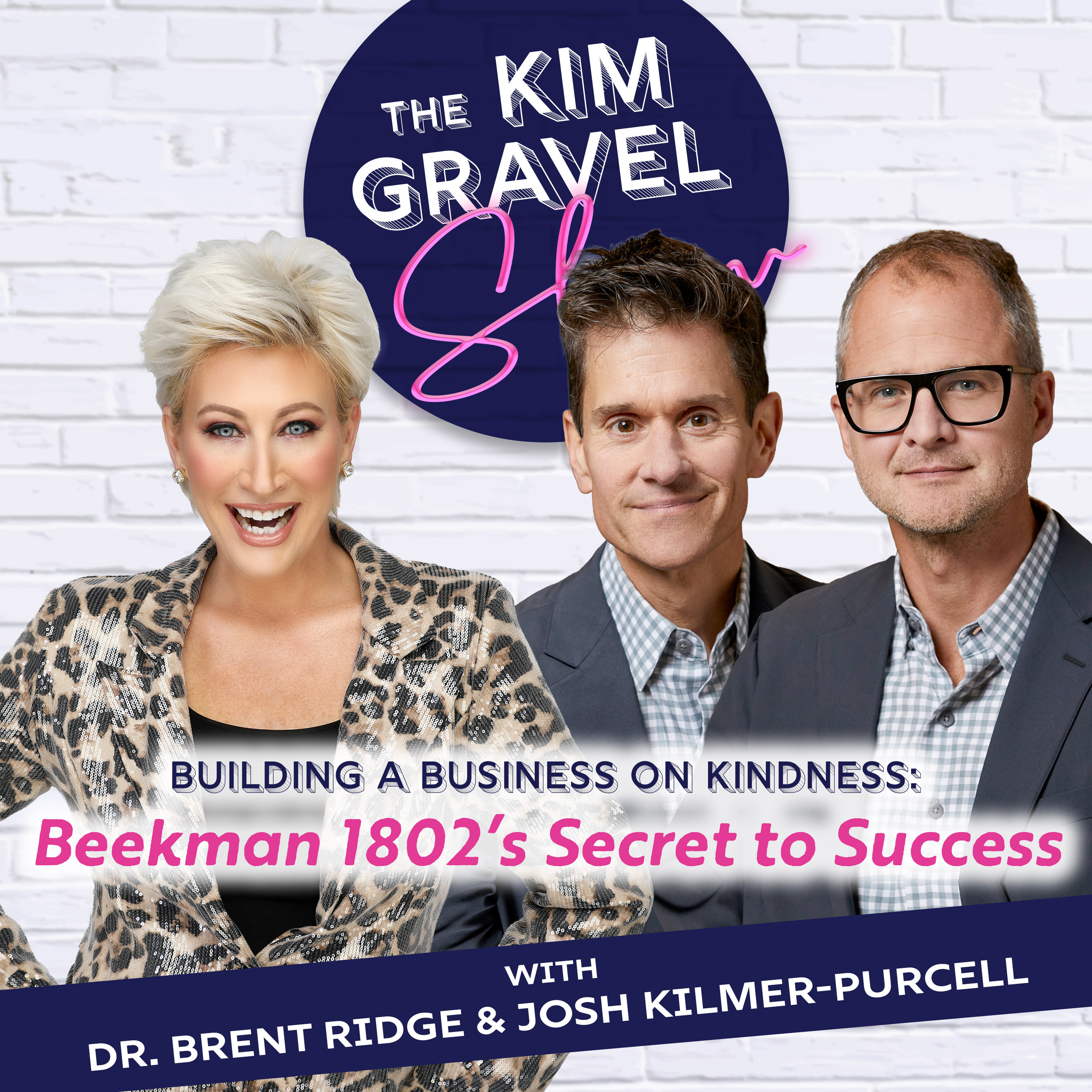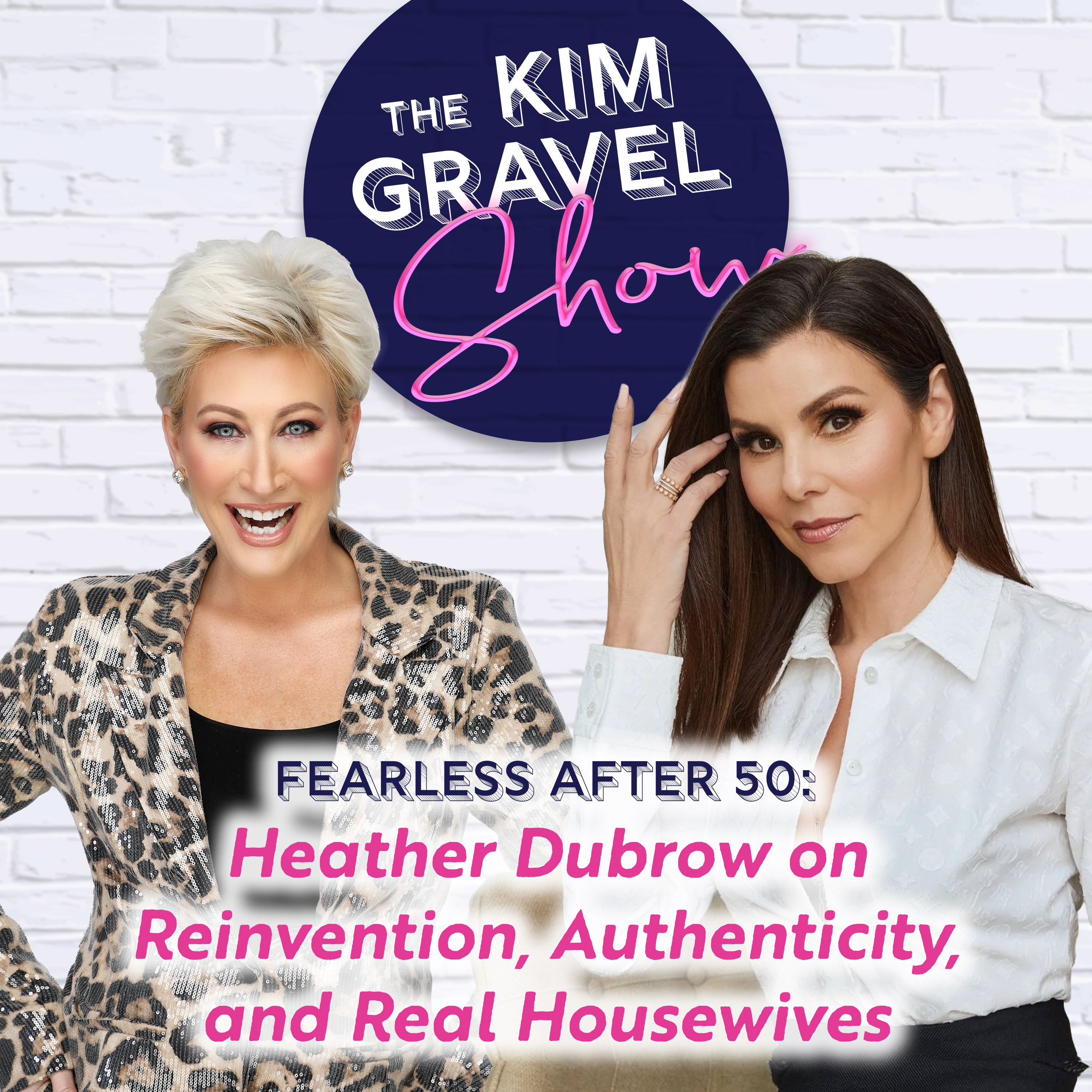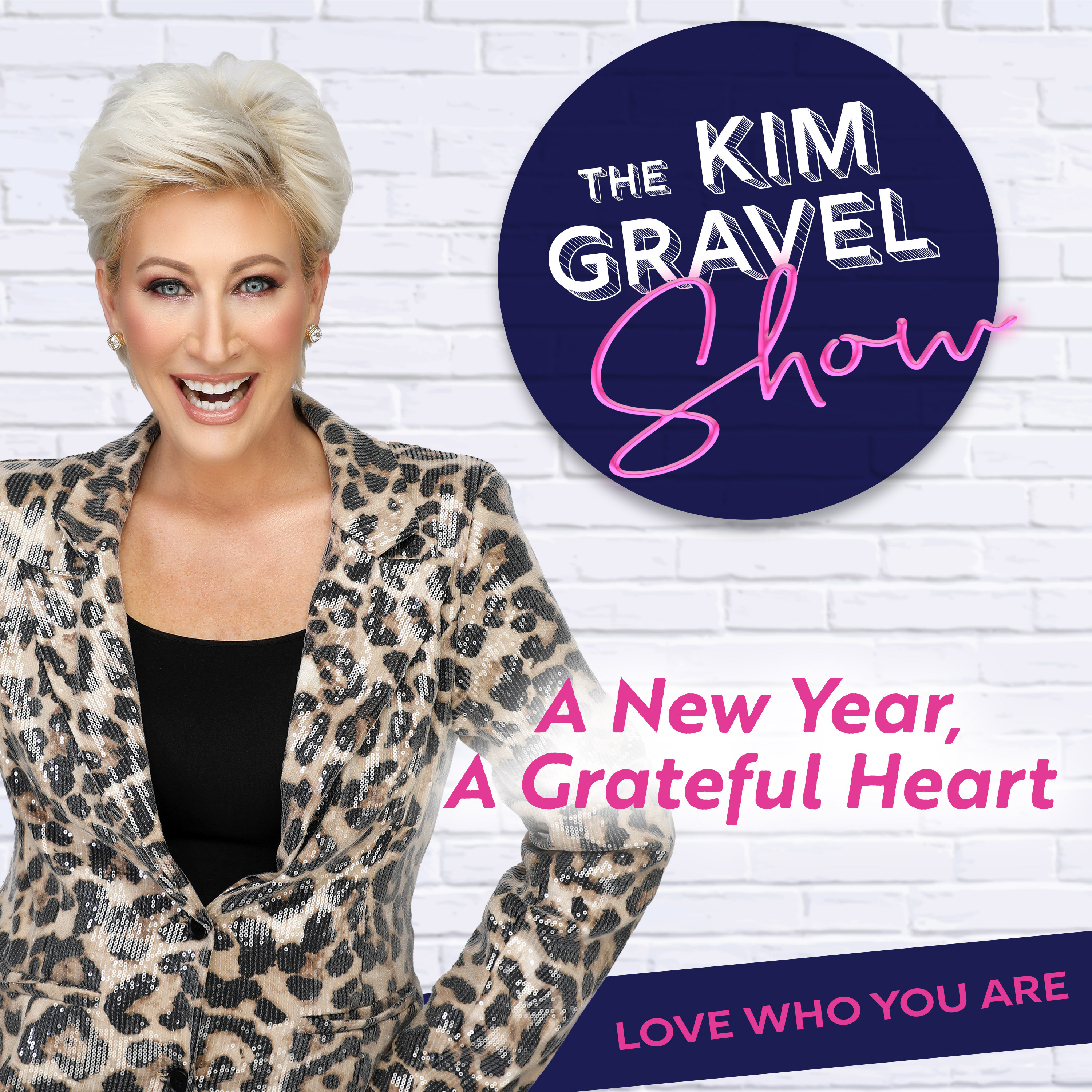How Our Bodies Store Trauma and How to Heal It with Dr. Aimie Apigian
Trauma expert Dr. Aimie Apigian explains what trauma really is, how it lives in the body, and how to begin healing it.
This week, trauma expert Dr. Aimie Apigian is here to change how we understand trauma. She shares how becoming a foster parent led her into trauma healing—and y’all, her story is powerful. Dr. Aimie explains the difference between stress and trauma, reveals how our bodies hold onto past experiences, and offers practical steps for us to start releasing them. Get ready for real talk, actionable tools, and hope—this episode is for all of us ready to heal from the inside out.
In this episode:
- How becoming a foster parent shaped Dr. Amie’s path to becoming a trauma expert
- The three qualities shaped by trauma responses
- How the body recognizes and stores trauma
- Common patterns of stored trauma in the body
- Actionable steps to begin healing trauma in the body
Here is my favorite quote from this episode:
"The body does not allow us to leave our past in the past." - Dr. Aimie Apigian
Experience Bible Life Guides: Forgiven and Free — a 21-day Bible-based journey to emotional freedom, available free at https://try.biblelifeguides.com/products/forgiven-free-with-kim-gravel
Take the Quiz: Which Maribelle and the Manger character are you? Find out here: https://bit.ly/4pxUqF8
If you want your questions answered then leave a comment or call me and leave me a voicemail at 404-913-6460
There is BONUS CONTENT in our free newsletter so make sure to subscribe at https://www.kimgravelshow.com
NEW! Order Kim’s Holiday Children’s Book
Embark on a magical adventure with five friends as they journey together to witness the birth of Jesus! It’s a heartwarming holiday tale your whole family will love.
Kim’s brand-new storybook Maribelle and the Manger is available now: https://maribelleandthemanger.com/?utm_source=lwya.beehiiv.com&utm_medium=newsletter&utm_campaign=pre-order-kim-s-new-book&_bhlid=075a4287c5257cbe2d43cc23e857262cc9cf39cd
Connect with Dr. Aimie Apigian:
Podcast: The Biology of Trauma
Connect with Me:
New episodes of The Kim Gravel Show drop every Wednesday at 6pm EST.
Support our show by supporting our Sponsors:
Aura Frames
The holidays are almost here, and Aura Frames is the gift that brings memories to life. Aura is a digital photo frame with unlimited storage that can be updated instantly from any phone, anywhere. It’s an easy way to share moments, keep traditions alive, and feel connected every day. You can’t wrap togetherness, but you can frame it.
For a limited time, visit https://on.auraframes.com/KIM and get $45 off Aura’s best-selling Carver Mat frame with promo code KIM at checkout. This exclusive Black Friday/Cyber Monday offer is their best of the year—order before it ends!
HERS
Menopause can bring hot flashes, fatigue, brain fog, and other challenging symptoms—but getting help doesn’t have to be hard. HERS now offers menopause care through their trusted online health platform. Complete a simple medical intake, and if eligible, a licensed provider creates a personalized treatment plan with access to FDA-approved options. Many women start feeling relief in 4–6 weeks, with better sleep, fewer hot flashes, and improved overall well-being.
Visit https://www.forhers.com/kim to get a personalized plan.
Not available in all 50 states. Perimenopause & Menopause by Hers includes hormonal health support, educational resources, digital tools, and prescription options, if appropriate. See website for full details, important safety information, and restrictions.
*This transcript was auto-generated*
Kim Gravel:
Those overachieving, busy women. We need to take care of ourselves so we can take care of others.
Dr. Aimie Apigian:
It was a low moment for this mother because I had already tried everything that I knew. It took me to my knees and that was a turning point for me. We have gotten so used to being disappointed. We've gotten so used to working hard for something and then it's never something that we get. It's always just out of our grasp that we're like in. It's not safe to even hope anymore.
Kim Gravel:
Well, what are the actionable steps? What are the steps to heal your trauma? Hey, y', all, Kim Gravel here. Welcome to the Kim Gravel show. Your weekly dose of encouragement, hope and a little bit of laughter. I am Kim Gravel and my producer Zac Miller is with me. Hey, Zac.
Zac Miller:
Hey, Kim.
Kim Gravel:
We've got a fantastic show for you this week. My guest is here to change the way you think about trauma. She is a double board certified physician in preventative medicine and addiction medicine. I know we're going to get deep, but we're going to have a lot of fun doing it. She has a master's degree in biochemistry and in public health and her new best selling book called the biology of trauma. Yup. Trauma does happen externally and internally and we're going to talk about that. How the body holds fear, pain and overwhelm.
Kim Gravel:
Oh, lord, do I need this? And how we can learn to heal it. Everybody please welcome Dr. Aimie Apigian.
Dr. Aimie Apigian:
I love it.
Kim Gravel:
Don't you love it? We're gonna give you and you can. I'm just gonna put it in my ringtone every time you call me or I call you because I feel like we're gonna be besties. That is gonna come up. Dr. Aimie. Play it one more time just for Dr. Aimie. Dr.
Kim Gravel:
Aimie Opecion.
Dr. Aimie Apigian:
But see, Kim, now you've set a new standard for me. And when anybody else interviews me, I'm like, no, you're not as good as Kim. You're just not as good as Kim.
Kim Gravel:
Kim. That's the reason. That's the main reason is exactly what I wanted you to say. Thank you for being on the show. We'll talk later. I'm just kidding. Isn't it the truth though? Like, everybody should have that kind of entrance.
Dr. Aimie Apigian:
You know what?
Kim Gravel:
Everybody.
Dr. Aimie Apigian:
We live in a world where we are so used to criticizing each other and being jealous of each other that we need people around us intentionally surround ourselves by people who will support us. So thank you.
Kim Gravel:
Well. And I support you a thousand percent. Because I'm telling you, just reading a little bit of your book, it has. I had a lot of aha's. I had a little bit of things happen inside of my heart and my soul and my body, you know what I'm saying? Like, I could relate and connect and a lot of things started making sense. And your journey started with taking in a foster child as a single mother in medical school. And I have two children and can I just tell you, I love them, but I do not like them all the time. So we are gonna relate so well.
Kim Gravel:
Tell me how you got here. Tell me how you got to be this author of the Biology of Trauma.
Dr. Aimie Apigian:
Well, Kim, you know this, right? Like, life is layers deep. And so there's the story, but then there's the story.
Kim Gravel:
Do tell about that.
Dr. Aimie Apigian:
So it started with me saying, I want to become a foster parent. I want to have the most meaningful life and I want to give and I want to love and I want to help someone. Like, I'm a people fixer at heart. Some of my trauma patterns there.
Kim Gravel:
So I'm like, mine too.
Dr. Aimie Apigian:
And here was this opportunity. So I thought I was signing up to be a foster parent for a few months because I was going back to medical school. And everybody knows that a single mom in medical school is not the ideal moment possible.
Kim Gravel:
Almost. Yeah, right? Well, yeah, not on paper.
Dr. Aimie Apigian:
Well, and then you have someone like me who I'm like, I can do it all. You want to tell me.
Kim Gravel:
I have no idea what you're talking about, Doctor. Aimie. I have no idea what you're talking about.
Dr. Aimie Apigian:
Yeah, so I knew that. I knew that about you, so I'm trying to explain it to you because I know that that is so deeply embedded in you that you're not aware that it's your pattern, correct?
Kim Gravel:
Oh, no, I'm becoming. Can I tell you, I'm becoming more aware every day.
Dr. Aimie Apigian:
Isn't it uncomfortable? I hated that phase. I hated that phase of learning, like, the layers deep of myself and being like, man, I am really messed up.
Kim Gravel:
Come on, girl.
Dr. Aimie Apigian:
I'm messed up than I thought I was.
Kim Gravel:
Yes.
Zac Miller:
Okay, end of interview. That's it. See you later.
Kim Gravel:
I mean, she's reading my mail. She's preaching to the choir here. But it's so true. And so, you know, you became this foster parent. Did it like. Yeah, just you tell the journey because it's so good and so relatable.
Dr. Aimie Apigian:
Well, the universe, God, whoever you believe in was like, all right, Aimie, we need to really take you somewhere in life. And given how stubborn you are, we know that we need to give you one of the toughest children in the foster care system to get your attention. So I got Miguel. And Miguel was 4 years old at the time. He'd been in the foster care system since age 9 months. Which for me, as a people fixer, I was like, hello, yes. And all they had to say was, we have a four year old who needs a home. And I was like, tell me no more.
Dr. Aimie Apigian:
The answer is yes. And what I did not yet understand about trauma and the body is how the body does not allow us to leave our past in the past. He brought all of his past with him. It was as if I were his birth mother and I was the one who had hurt him. And as soon as we made that switch to me saying, okay, I think I am going to adopt you to get you out of the foster care system, that has only further traumatized him, it was like all of his anger towards mother, just the representation of what mother had meant to him was now fully directed towards me. And as you know, that's how I start. My book is a rocking chair moment with Miguel where I don't know if I should tell people how the book starts. It's the rocking chair.
Kim Gravel:
Do it. Because they're going to want to read it. Do it. Tell it.
Dr. Aimie Apigian:
It took me to my knees and I've got my book right here. So in fact, I'll read it for your audience because please do. All right. Introduction. The biology of Trauma by Dr. Aimie Pigian. Introduction.
Kim Gravel:
So good.
Dr. Aimie Apigian:
Mommy, I'm going to kill you tomorrow. Not today, mommy, tomorrow. And that was a knife to my heart. Not only because he's saying that, but Kim, because I had been working so hard to fix him, to save him, to heal him, to love him. And so to see that not only had I not made progress, it felt like we were even backtracking. What do you mean? That after all that I've done for him, he's like, yeah, I think I'm going to kill you tomorrow. And I'm going to start by poking your eyes out with sticks. It was a low moment for this mother because I had already tried everything that I knew.
Dr. Aimie Apigian:
It took me to my knees. And that was a turning point for me. There will be many more turning points in my story, but that was the first turning point where I was like, I need to forget what I've been taught and what I've known, Because clearly I am missing something big. And I have a child that if I don't find answers for him. He will never have a happy memory of his childhood, and he will have an awful life. And he will be set up to just be one more statistic that the foster care children are. And I don't want him to be a statistic, but that is exactly where we're headed. I have got to do something.
Dr. Aimie Apigian:
And I opened myself up to things that I never would have been open to before because I was so set on. No, I know what kids need. I know the body. I know trauma. I know what's healthy parenting. I. I know my stuff. And I didn't.
Dr. Aimie Apigian:
And we don't know what we don't know. And that's our amen.
Kim Gravel:
We don't. We don't. And let me just say. Let's just start, because when you, when you say trauma, I want you, for everybody listening right now, to define trauma for us. Because when we think trauma, we think. I'm not going to say we. I'm going to say me. Okay? I think of.
Kim Gravel:
It's this monumental crazy. I've been held at gunpoint, you know, whatever thing that happens. But can you define what actually constitutes trauma when you saying the biology of trauma?
Dr. Aimie Apigian:
This has been so helpful for me to wrap my mind around. How does the body hold trauma if I never even thought that it was trauma in the first place?
Kim Gravel:
Come on. That's what I'm talking about. That's exactly what I'm talking about. People don't. I don't even know exactly what. Okay, okay, okay.
Dr. Aimie Apigian:
And this is what I've seen so many of my patients, especially high functioning women, do because. Because we are so strong and because we have become, or needed to become so hyper independent, we downplay what we go through and we can always find someone who's had it harder. And we don't want to allow ourselves to feel sorry for ourselves because we can feel the heaviness. We can feel the sadness. We start to feel the grief, Kim. And we don't want to allow ourselves to feel the grief because it will slow us down. It will bring us down. And we've got to function.
Dr. Aimie Apigian:
We've got responsibilities. We can't slow down. And so we downplay what we've been through so that we don't actually feel the grief and the pain and the fear that's still underneath the surface. So what is the difference between stress and trauma? It really does come down to our physiology. And we have a stress response and then we have a trauma response. And they happen to be very Different. And they are representing different degrees of danger.
Kim Gravel:
Let me briefly explain.
Dr. Aimie Apigian:
Sress is going to be our response to the size of danger that we feel that we are capable of overcoming. Even if it's hard, if I feel like I've got a chance, I'm going to fight for it, I'm going to go for it. So it's the high energy rising to the occasion to overcome a demand, a problem, a challenge, a danger. So if that's the stress response, if that's what triggers a stress response, what would be the degree of danger for a trauma response? Any idea?
Kim Gravel:
I have no idea.
Dr. Aimie Apigian:
Complete powerlessness.
Kim Gravel:
Wow.
Dr. Aimie Apigian:
Meaning there's nothing that I feel that I could do that would make a difference. It wouldn't make a difference.
Kim Gravel:
It's hopeless.
Dr. Aimie Apigian:
Hopelessness. And so there's three qualities that make an experience. Be that of powerlessness that our body says it's not good. For me to try to rise to the occasion, I need to survive through different strategies. It's unbelievable. I can't believe what's happening. This was never supposed to happen. Life was not supposed to go this way.
Dr. Aimie Apigian:
So there's an element that's unbelievable, that it causes a shock, it stuns us and that's what paralyzes us for a moment inside. And then it's unbearable. It's these unbearable sensations inside of us that says, I don't want to be present to this. It feels so awful. I need to find an escape. It's not often a physical escape. It's the mental escape. And then it's just overwhelming.
Dr. Aimie Apigian:
Like, I feel like I'm drowning in my own internal chaos that I don't even understand. The world is just flipped upside down. I don't know north from south. I don't feel connected to myself or to the world. I feel like I'm free falling. It's overwhelming. Those are the three qualities that a trauma response creates for us. So it's very different than stress.
Kim Gravel:
I don't know about you, but after I turned 50, things just started to feel a little off. I had the hot flashes for sure, but the brain fog, the fatigue. Just never feeling right in my own skin. I knew I was having menopause symptoms, but finding help felt so hard. And it felt like I had nowhere to go to get real answers on what was happening to my body. But now there is a solution. Because for the first time, hers is offering access to menopause care. Yeah, Menopause Care, their trusted online health and wellness platform, is already used by hundreds of thousands of women and Their new menopause treatment is making it even better.
Kim Gravel:
This process is simple. Complete a medical intake form online and if eligible, a licensed provider can creates your personalized treatment plan for you. And through the HERS app, you have access to unlimited messaging with a care provider to make sure your plan is working for you. As women, it should be simpler to access healthcare built around you and your unique needs. Whether you want to get ahead of menopause symptoms, lose weight, grow thicker, fuller hair. I do. Or find relief for anxiety, hers has you covered. Visit fourhers.com that is F O R H E-R-S.com Kim to get a personalized treatment plan that is right for you.
Kim Gravel:
That is f o r h e r s.com Kim not available in all 50 states. Perimenopause and menopause by hers includes hormonal health support, educational resources, digital tools and prescription options if appropriate. See website for full details, important safety information and restrictions. Hey y'.
Kim Gravel:
The holidays are almost here and I always have my eye out for the most amazing gifts. That's why I'm obsessed with my new sponsor, Aura Frames, y'. All. An aura frame lets you bring your favorite memories, holiday traditions to life in an instant every single day. It is a digital picture frame with unlimited storage that I can update anywhere and everywhere in the world right from my phone. So if my teenager actually smiles for a photo for once, I can send it right to their Nana's Aura frame and she can enjoy that photo in her house instantaneously in an instant. You can't wrap togetherness, but you can frame it. And for a limited time, visit auraframes.com and get 45 off Aura's best selling Carver Matte frames named number one by Wirecutter by using promo code Kim at checkout.
Kim Gravel:
That's aurarames.com promo code Kim. And this exclusive Black Friday Cyber Monday deal is their best of the year. So support the Kim Gravel show by mentioning us at checkout. Terms and conditions apply. Can I ask you a question? You said something that when you said it's unbelievable, you like, this is not supposed to be happening to me. This is. This is not right. What's happening to me? Miguel, at four years old, your foster child, how did he know? Do you know what I'm saying? Like, even at that young age, the body knows that this should not be happening.
Kim Gravel:
You know, people who deal with things that happen to them very young.
Kim Gravel:
Where is that knower? How does the body know that this is trauma? Even at four years Old.
Dr. Aimie Apigian:
One of the biggest misconceptions about trauma, Kim, is that if it happens young enough, you won't remember.
Kim Gravel:
Oh, God. Jesus.
Dr. Aimie Apigian:
And I have seen so many families adopt at birth, assuming that because they adopted at birth, the baby will not know, will not remember, and won't have these attachment problems that the rest of us had who adopted a child later in life. It's wrong. And here's a story to prove it. I just spoke at Boston Medical Pediatric Conference, and I was sharing a story. I had someone who came up after I spoke, and she says, you touched on something. And even now I'm getting goosebumps remembering the moment that this woman came up to me. She says, I had a family member who. Very similar thing happened at two years old.
Dr. Aimie Apigian:
She was molested by one of our uncles, and the family had a conversation at that time, and they all agreed to never talk about it because she was so young she wouldn't remember. Now, they also did some precautions. They made sure that that uncle was never around that girl, and she grew up, and she never saw him until 18 years old. They're having a family reunion. You already know what's going to happen, don't you, Kim?
Dr. Aimie Apigian:
They're having a family reunion. He's in the living room. She walks in. This is the first encounter she has ever had with this person. And no one had talked about it, so she didn't know. She walks into the living room, she sees him, and her body immediately breaks out in hives and. And a rash. Her anxiety level skyrockets.
Dr. Aimie Apigian:
And mentally she's like, what's going on? Why?
Dr. Aimie Apigian:
Why is this happening? Why. Why is my body doing this weird, strange thing, this idea that our body knows is true, Knows it, knows it has a knower.
Kim Gravel:
But, but do they work in. Does your body and, and. And your trauma response or your brain or what, working together in tandem? Do they. Do you know what I'm saying? Like, does one. You know what I mean? Like, because this is so deep for so many. But so many pain is pain. I believe that. I mean, so I would never judge one trauma of it.
Kim Gravel:
I think you're right. I think we experience a lot of traumas that we're just conditioned to press it down and then it comes out in sickness in our body. I can tell you. I mean, this is bizarre. And I don't want you to diagnose me, Dr. Aimie. But I am gonna sit here and ask you this because I have been under such stress, and now I'm starting to believe it's been trauma in a business situation in my life and just. Just the pressures of so much.
Kim Gravel:
I'm gonna start crying. I'm gonna start crying. I don't want to cry that. It's just. It's my jaw. My TMJ in my jaw. I can barely. I can't even.
Kim Gravel:
Like at night, it hurts so bad when I wake up. I'm like, what am I doing to myself in the middle of the night?
Dr. Aimie Apigian:
All right, well, let's work with that a little bit right now, if that's okay.
Kim Gravel:
Sure.
Dr. Aimie Apigian:
I'll keep it safe. All right. So you're just going to copycat me and do exactly what I do.
Kim Gravel:
Okay. Let y' all start to hurt right now. Okay.
Dr. Aimie Apigian:
Even if it's weird, you're going to copycat me, right?
Kim Gravel:
Okay. Okay.
Dr. Aimie Apigian:
Take a deep breath in. And then we're going to make the sound vu on the full exhale. Deep breath in. And let's just give that a pause. Oh, I feel some heat coming up into my face. Yeah. Wow, look at that. That's some softening.
Dr. Aimie Apigian:
Your shoulders really came down, Kim. It's almost as if you.
Kim Gravel:
Yes, yes.
Dr. Aimie Apigian:
What would happen if we didn't brace?
Kim Gravel:
You know what? I'm starting. I think I. I think I'm always fist up bracing.
Dr. Aimie Apigian:
Yeah, I know what would happen.
Kim Gravel:
You know what I mean?
Dr. Aimie Apigian:
I do know what you mean. That's why I'm asking the question what might happen if we actually were to let go of that bracing, Something bad would happen, which is why we keep bracing.
Kim Gravel:
So I think somebody's going to hit me upside the head or the face or the spirit or whatever. Yeah, I'm on guard. I'm always on guard. Always on this situation.
Dr. Aimie Apigian:
Let my guard down.
Kim Gravel:
But is it.
Dr. Aimie Apigian:
Well, your body believes that there's danger right around the corner. Your body believes.
Kim Gravel:
I'm telling you, girl, this is deep. This is so deep.
Dr. Aimie Apigian:
And so if our body. And by our body, I really mean our autonomic nervous system, the branch of our nervous system that keeps us alive. Its job is to keep you alive, Kim. It truly believes that it has to keep you guarded in order to keep you alive. Poor thing.
Kim Gravel:
Are we. So are we experiencing so much more trauma than we ever have, or is it just our coping skills? Because what's actually happening inside the body, cell wise? I mean, is it. Is it really in that fight or flight like you're talking about, like, chemically?
Dr. Aimie Apigian:
Well, here's an interesting announcement for people. There is actually more to fight or flight than what they've taught us there is the fight or flight. That is the stress response.
Kim Gravel:
Okay.
Dr. Aimie Apigian:
And stress response is most commonly triggered by our trauma. So our trauma will put us into a stress response, but then we're in that stress response, and we wait until we cross that line and go into overwhelm. So how do we know that we're in the stress physiology? We have high anxiety, high energy, we're doing something. We're on the hamster wheel when we know we've crossed the line and we're in trauma physiology, which is where we really need to be worried about that. And the damage that it does to our body is when we feel like the hamster wheel is still running, but we're just getting bounced around. We're not. We're not running anymore. We're not keeping up anymore.
Dr. Aimie Apigian:
We're just flopping around on this hamster wheel now, hitting one wall after the other. So most people are in either stress or trauma physiology all day long, and they just go back and forth between the two. Many people are waking up in overwhelm their first thought of the day. And this is what I always ask people. What's your very first thought of the day? Before you use your positive psychology mantra stuff to fix your thoughts, I want to know your very first thought of the day, because that's what will show the window into your survival state. And they often will tell me, my first thought is, I wish it weren't morning. I don't want to wake up. I don't want to get up now.
Dr. Aimie Apigian:
I have to, but I don't want to. And so we're waking up and overwhelm, which means that we need energy to pull ourselves up out of that low energy state, which is why caffeine and coffee is one of the biggest businesses in the industry, because it's our immediate fix for adrenaline. It's what makes us feel like we maybe can get through the day. And so we wake up in overwhelm. We put ourselves in stress, and we go as long as we can throughout the day in stress until we crash, and then we're back in overwhelm, and we find ourselves on the couch eating M&Ms. And binge watching movies.
Kim Gravel:
Yeah, that's. I mean, you just read my entire mail. That has been me for the last six months. How do we know if our biology is keeping us stuck in overwhelm? Overwhelm. So you're saying overwhelm is a sign that there has been trauma?
Dr. Aimie Apigian:
Overwhelm is the trauma response. It is the Zone that we have when we are in a trauma response.
Kim Gravel:
Because it is, like, overwhelmed for me right now is like, uncle, I give up. I don't care.
Dr. Aimie Apigian:
Exactly.
Kim Gravel:
I'm not doing. I'm checking out. I'm zoning out. I am burying my head in the sand. Okay, okay, well, I'm there.
Dr. Aimie Apigian:
I know.
Kim Gravel:
I need this book. I got to read the whole book. I got to have the whole book. How did you move forward with Miguel after recognizing it was. I mean, because this has been your journey, and this was the catalyst, I think, for you, from what you. From what I understand, for you to even go down this path. How did you. How did you process all of this? How did you help him process it?
Dr. Aimie Apigian:
I eventually did find all the pieces for him. It took six long years and a lot of different things, a lot of different people that I went to learn from and study from. I went all in. All in, as only a mom does. And then something sad happened. After bringing all those pieces together, then I have a son who's quite amazing, actually, and I'm so incredibly proud of him. And he's opened up, and his heart is open. It's amazing.
Dr. Aimie Apigian:
And then the saddest thing happened. It was the hardest thing I've ever been through and I've ever, ever done. I am still a single mom, and I had to make the hard decision to adopt him out to another family.
Kim Gravel:
Oh, my gosh.
Dr. Aimie Apigian:
And the grief of that, Kim, the grief was my trauma, and I did it the best that I could. I took two weeks off of work to do this whole transition so that it could be not just me dropping him off and abandoning him. No, we're gonna. We're gonna do this however I can to help him be successful with this. But one month later, Kim, One month later, I get diagnosed with chronic fatigue syndrome, autoimmunity. And I can't get out of bed because it's so bad. And here, as a physician, I did not connect it to my grief. I did not connect it to trauma.
Dr. Aimie Apigian:
I had so long learned how to just push through, keep going. Don't let yourself get slowed down by your feelings. Do whatever you need to do. Exercise, emotionally, eat, avoid, distract, numb became my mantra. And I did that for so long that my body had to get my attention the only way that it could for me, which is literally not. Let me get out of bed one morning. I did not have the energy to get up, to move, to move. And that's the power of trauma and the body.
Kim Gravel:
Yeah.
Dr. Aimie Apigian:
And that's why when people Wanted to call it burnout. I was like, nope, this isn't just burnout. Oh, this is chronic stress. No, this is not just chronic stress. So as a physician now, what I tell people is, look, if it makes you sick, that was not just stress. Let's call it for what it is. That was a trauma to your body. Your mind can have other ideas, and that's fine.
Dr. Aimie Apigian:
Your mind has a mind of its own, but your body has a mind of its own.
Kim Gravel:
Its own, too. Yeah.
Dr. Aimie Apigian:
And your body says, that is way too much for us to process.
Kim Gravel:
So the mind plays tricks on us, but you're saying the body does not. The body never lies.
Dr. Aimie Apigian:
The body never lies. We may ignore it, but it never lies.
Kim Gravel:
Yeah. Okay. Okay. Let me ask you this. Do you think there are more people walking around in the trauma response? Do you think that's why we have the manifestation of so many diseases. Diabetes on the rise? Is it more than just what we're ingesting and taking in? Is it our bodies trying to tell us something?
Dr. Aimie Apigian:
So what I lay out are the five patterns of how we can recognize stored trauma in the body. Something that's become chronic. Right, because we have an acute event, and the acute event is something that just happened. But then there's this thing that it becomes chronic. So I'm wanting to help people recognize how it has become chronic in a person's body. And diagnoses or physical health conditions are one of those five patterns. A dysregulated nervous system that is in survival mode is the driver for all chronic health conditions. I don't care which one it is.
Dr. Aimie Apigian:
Why can I say that? Because the body has innate ability to repair, to be healthy. And it does those things on its own. When it has everything that it needs, meaning. It has a sense of safety. It has all the nourishment. It has the movement and the water and the sleep and the community. Our body will naturally repair and heal itself. So if it's not, something is driving that.
Dr. Aimie Apigian:
And this has been a big gap in medicine, then. Because if a person, When I come to that physician, they're not saying, well, how much in fear are you these days or how overwhelmed are you these days? Kim. Right.
Kim Gravel:
They just prescribe you a pill.
Dr. Aimie Apigian:
They prescribe you a pill, and we're missing the driver by just managing and masking the downstream symptoms.
Kim Gravel:
So we are treating the symptoms and not getting to the real root of the problem.
Dr. Aimie Apigian:
Yes. And here's a story that will help people understand this. I had a patient, Kenneth. I share this story in the book, for those who will come across this story, Kenneth was a veteran. And so, like many people, he was using exercise to manage his emotions instead of feeling them. And so he's in the gym one day and he's doing his lifting weights thing. But today will be different because he can only lift a certain capacity. Each of us has a capacity for how much stress we can hold, and we're fine as long as we stay within our capacity.
Dr. Aimie Apigian:
It's when things start overflowing and flooding and it's beyond our capacity. Well, that's what happened to Kenneth this morning. So he's lifting the weights, and rather than grow his muscle, it breaks his muscle. So he comes into the ER and his bicep is in the middle. Middle of his arm, no longer attached to the shoulder where it should be. Now, for me, of course, this is. This is astounding. Like, this is the first torn tendon that I've ever seen.
Dr. Aimie Apigian:
Right. Like, I've seen it in textbooks. But the real thing now, what can often happen is that when people come in and they are coming in broken like that, their physician is saying, wow, you've been under a lot of stress. You should do some stress reduction techniques. You should do some stress management techniques. You should do a little more self care. If I had applied that same principle to Kenneth, I would have said, kenneth, you stressed your muscles out too much. Put some ice on it.
Dr. Aimie Apigian:
Rest and you'll be fine. No, by calling it stress, we're actually giving the wrong treatment. He needed to go to surgery because it was broken, and we needed to reattach it to his shoulder. It's the same thing with trauma, is that it requires a different approach, different tools than if it's just. Yes. The self care, the squadron, the bath is not going to be enough, honey.
Kim Gravel:
It's not. Oh, my gosh. Yes. We got to have some kind of surgical removal or surgical reattachment. Yes.
Dr. Aimie Apigian:
So the way that I see it, Kim, is this idea that trauma gets stored into our body, and so we need to open it up so that we can feel it and release it. How do we know that we're doing surgery? Right. Surgery is opening up, opening up. But here's the thing, Kim. The opening up is what is so terrifying.
Kim Gravel:
So, yeah, yeah, that's true. That is true. Yes.
Dr. Aimie Apigian:
And that's. That's the first step.
Kim Gravel:
Because fear of being judged, fear of having to face it, fear of reliving it. I mean, I could just fear, fear, fear, fear, fear. Just not wanting to face it. I mean.
Dr. Aimie Apigian:
Yeah, exactly.
Kim Gravel:
But there's where the healing and the freedom is at. That's what you're saying. Which is. But not just for the spirit or the mind, but you're saying for the actual physical body.
Dr. Aimie Apigian:
Physical body. So anyone with any chronic physical health condition needs to include trauma work for them to be in their best health 100%.
Kim Gravel:
Okay. This is. You know what, though? My dad just went through this. This is a true story. Dr. Aimie, my dad was just in the ICU, and it was just. He had a thyroid problem, but it was just turned into dehydrated. I mean, it was just this menagerie of, like, problems.
Kim Gravel:
And finally, it's like when all of our. It was so weird, girl, I'm telling you, when all. All the family came together and it was like we all united and we talked and we laughed, and then he came home and we were all there all the time, laughing, talk. And I'm telling you, he is better today than he was a year ago, before it even happened. It's the most bizarre thing I think I told my mom. Dr. Aimie. I said, I think we were healing.
Dr. Aimie Apigian:
For him, and that's what is possible. Kim. So that's what I see. Which is why I hold the hope of what is possible for repair and healing at any age. We can actually still have our best life ahead of us. And we. And we. I would want people to want that and reach for it.
Dr. Aimie Apigian:
But here's the thing. We have gotten so used to being disappointed. We've gotten so used to working hard for something, and then it's never something that we get. It's always just out of our grasp that we're like, it's not safe to even hope anymore.
Kim Gravel:
Well, is that why we're. Why it's out of our grasp?
Dr. Aimie Apigian:
Yes. And so that's when we start to just settle for, well, I guess this is the best I can expect. And I'm just gonna. I'm just going to walk around in my bubble and try not to get triggered because, girl, oh, girl, don't poke the inner trauma because it makes big messes when it comes out. I don't like to be messy. And so just don't poke the bear. And I walk around in my bubble and my world slowly becomes smaller and smaller and because I'm trying to become smaller to stay safe.
Kim Gravel:
Oh, my God.
Dr. Aimie Apigian:
And that's not healing right. But that's. We haven't known how to heal, so of course that's what we're going to do. Of course that's what we're going to do.
Kim Gravel:
And as a doctor, as a medical doctor, you. I mean, this is so bizarre to hear this coming from a medical doctor, first of all. But you don't go to your local general practitioner or even specialist and hear these sort of things.
Dr. Aimie Apigian:
No. And that's what gives me all kinds of emotions.
Kim Gravel:
That's why you write the book, right? That's why you write the book.
Dr. Aimie Apigian:
Because we know. We know this connection. It first came out in the Adverse Childhood experiences that was published in the 1990s. We haven't known what to do with it, so it's just kind of sat there as information. And if you're really trauma informed, you you're going to now take an ACE score and ask someone about all the bad events that happened in their life so that you can give them an ACE score and tell them, you know, we're so sorry, but you're going to have more disease, your symptoms are going to be worse, and then you're going to die early because you have a high ACE score. And they calling that being trauma informed. I mean, it's like we're just missing so much.
Dr. Aimie Apigian:
But yet also we're missing a lot over in the therapy side, because what therapist are you going to go to who says, hey, have you been taking magnesium? Hey, we need to work on your mitochondria because I see that you don't have the energy for the work that we need to do. So I can't do the deeper work until we help your mitochondria make more energy. What therapist is saying that? So it's like we have the two worlds that we need.
Kim Gravel:
Well, what are the actionable steps? What are the steps to heal your trauma? Like, if someone's listening and I know we've all got it. First of all, you got to go get the book, get Dr. Aimie's book. But what are some of the steps that you can share with us that actually begin the healing process in our body for trauma?
Dr. Aimie Apigian:
Yeah. The good news is that the whole section three of this book is all on repair. So I lay down now. I don't hold back. I give it all to you. So when you get to that part of the book, Kim, you're going to have so much more hope than how far you've gotten so far.
Kim Gravel:
I might just skip to that part. I'm ready for it.
Dr. Aimie Apigian:
So section one of the book is on how the body experiences trauma and this big concept of what is different between stress and trauma. It's this Thing called the critical line of overwhelm. And what are those things that will make a body cross that line? It's fascinating. So then section two, I go into. All right, so then if that trauma response happened in the past, why the hell does my body hold onto that? And how. Right. Like we have the concept that the body keeps the score, but how does it keep the score? So I lay all of that science out in section two. So then section three is all right.
Dr. Aimie Apigian:
Now that we know where we're at and what's wrong, here's what to do about it. So what I lay out is this framework that allows a person to know what scale stage they are in so that they know what to do and what to focus on at each stage. Because otherwise, what I see happening, Kim, is that people, especially high functioning women, we won't name who in this room.
Kim Gravel:
I have no idea what you're talking about.
Dr. Aimie Apigian:
I know. So we tend to want to say, I'm going to jump all in because I know that I need to get this done. Let's just get it done. I'm tired of this. I don't want my kids to be affected. I can see it's leaking over them. Let's just get this. Where's the.
Dr. Aimie Apigian:
Where's the intensive that I can sign up for and.
Kim Gravel:
And be.
Dr. Aimie Apigian:
And what we end up doing is we end up being like, okay, I'm going to jump into the deep end of the pool. But, Kim, we haven't learned how to swim.
Kim Gravel:
Swim.
Dr. Aimie Apigian:
We haven't learned how to swim in our own emotions yet. And when we jump into the deep end, we then get drowned by our emotions because we haven't learned how to swim yet. And that is very hard for us to do because we don't want to take the time to learn how to swim. We wanted to get better yesterday.
Kim Gravel:
But.
Dr. Aimie Apigian:
By jumping into the deep end, we end up having more. More trauma, more triggers, more reliving more of that falling apart that we were afraid of and why we never did this before.
Kim Gravel:
Yeah.
Dr. Aimie Apigian:
And so the first phase has been counterintuitive for so many people. But going back to the principles of even how I did surgery on people and took them into the operating room and opened them up, I would not take them into surgery to open them up until it was safe to do so. If I had a patient coming in and they had cancer, does the cancer need to come out? Yes. Are we going to take them to surgery? Yes. Are we going to do that right now? No. We are going to look at Their labs, we're going to look at their nutrition. Because if I take them to surgery right now and open them up, it may be more dangerous. They may not survive the opening up.
Dr. Aimie Apigian:
So it's better for me to slow things down, to make sure that I'm doing it in a way that the body can feel safe and have it be helpful rather than hurtful. And I'm sure you've seen many women who've jumped in and it's been hurtful, not helpful.
Kim Gravel:
Oh, I've done it. I've done it.
Dr. Aimie Apigian:
We're jumping in the deep end without knowing how to swim first.
Kim Gravel:
I love what you say, Dr. Aimie, that the body heals itself where there's a lot of healing properties in the body. And I do believe that we are body, soul, body, spirit and mind body. And you're saying by. By reading this book, we're going to be able to, like, have those things work together better, Right?
Dr. Aimie Apigian:
Because it's an integration of the whole thing. It's. It's creating the whole environment. When I was a surgeon, I didn't have to worry if the skin was going to close because the body knows how to heal. My job was to create the environment for the body to do the healing that it already knows how to do. And that's the same for us. We have been still living in an environment, internal environment of fear and pain and overwhelm. That's not the environment in which our body can heal our past wound.
Dr. Aimie Apigian:
So it's about creating the environment and just learning how to do that. Anybody can learn how to create an environment for our body to then be able to engage its own healing strategies.
Kim Gravel:
And now you guys have the resources to do that. Get the book the Biology of trauma by Dr. Aimie. It's time. I cannot wait. I'm taking it home tonight. I'm going to start reading it right now from COVID to cover. I want you to do it to us overachieving, busy women.
Kim Gravel:
We need to take care of ourselves so we can take care of others. Okay. Before you leave, Dr. Aimie, you have to do what we call a rapid fire question. Meaning what? I'm going to say you ask you a question. What comes up, comes out. We're being open. We're opening ourselves up right now.
Kim Gravel:
Look at me. Some of them are ridiculous. Look at me. I'm already healing. So don't. Do not hold back. And some of them are ridiculous. But, hey, listen, you've been a mother to a small child.
Kim Gravel:
Nothing's going to shock you, okay? All right, what's the last thing you googled?
Dr. Aimie Apigian:
I googled the person that I have a meeting with later this afternoon and I had forgotten who they were. And I was like, shoot, I remember that. They're really important and I don't wanna blow it. All of these things that we tell ourselves, right? Like, oh, I have to show up perfectly prepared because what will they think about if they don't?
Kim Gravel:
That's true. I had a meeting yesterday like that and I was just like, God, what is his name? What is his name? And honestly, it's not because. Yeah, it's not because I didn't value the meeting. It's like just, I'm over 50 and forgetful. I mean, just. That's how it is.
Dr. Aimie Apigian:
But I don't want to look forgetful. I want to look like. I want to create the perception.
Kim Gravel:
Yes. Which I do not. What's the biggest health mistake women make?
Dr. Aimie Apigian:
The biggest health mistake that women make are to push through their fatigue rather than take it as a message from their body that something is wrong.
Kim Gravel:
And there's some toes stepped on there. Okay, what is the most frustrating advice you see on social media?
Dr. Aimie Apigian:
Just shake your hips and you can release your trauma.
Zac Miller:
That's not true. I've been shaking my hips for an hour.
Dr. Aimie Apigian:
Oh, my God.
Kim Gravel:
That is perfect. That's perfection. Oh, my God. Spoken like a true doctor. You are what you eat. So what food are you today, doctor?
Dr. Aimie Apigian:
I am on a carnivore diet. Right now. My nervous system is loving ketosis. So I do high fat, high protein. And so I. I am a cow today. I'm. I'm.
Dr. Aimie Apigian:
I'm a cow. No, I had. I had lamb for lunch, so I'm a lamb. How's that?
Kim Gravel:
You're a lamb. Oh, my gosh.
Dr. Aimie Apigian:
I'm a grass fed lamb.
Kim Gravel:
You're a grass fed lamb.
Zac Miller:
Free range.
Kim Gravel:
And I am a zinger. Devil's food cake filled with white cream. Okay, here we go. One thing you should probably take less seriously yourself. Ain't that the truth.
Dr. Aimie Apigian:
Seriously.
Kim Gravel:
You know, I love it.
Dr. Aimie Apigian:
All of the, you know, even today, right, like just looking at like, oh, there's a trauma pattern showing up and you know, like how I want people to perceive me and being able to laugh about it rather than beat myself up over it. I'm done beating myself up. Yes. It's something that I want to work on, but, eh, I can laugh about it along the way too.
Kim Gravel:
I love that. Do you know what a labubu is?
Dr. Aimie Apigian:
No.
Zac Miller:
Do you know what a Labub is Kim.
Kim Gravel:
I do. So let me tell you something. I have teenage kids. And so a labubu is this thing that's gone, not shake your hips viral, but it's gone viral. And all these kids are collecting them. The Internet says it's part evil. You know, I say it's. They're just trying to make some money.
Kim Gravel:
And I went and got a. I went to a big, fancy, you know, speaking engagement, and they gave everybody a little boo boo. I brought that home. And I thought that I had given my kids a million dollars. Well, it's so. I'm glad you don't know what that is.
Dr. Aimie Apigian:
It sounds like it could be something around like a 6, 7.
Kim Gravel:
Honestly, that was my next question. It says the kids are obsessed with saying 6, 7. What do you wish it means? I can't believe you just said that. Oh, my God, we are the same person.
Dr. Aimie Apigian:
You know?
Kim Gravel:
What do you think six, seven mean?
Dr. Aimie Apigian:
I've been told that it means, like, it's like, you know, it's. It's. It's okay, you know, it's so. It's okay. But yet, you know, like, is that really what six, seven means? Because it's better than five, right? It's just like, give me some grace here. If I'm a 6, 7, 7, I'm doing better than the majority. Come on, give me a break.
Kim Gravel:
Oh, my God, I love you so much. I know my kids, like, six, seven. And this is the thing, what they call me, Dr. Aimie is like. They call me. They like. I'm like, did you clean your room? Yeah, I clean my room. I'm like, did you really clean? They're like, no cap.
Kim Gravel:
And I'm like, what's no cap? What's that? You know, it's like all these, like, six, seven. I'm like, they're like, six, seven, six, seven.
Dr. Aimie Apigian:
We gotta level our. Our street lingo, you know?
Kim Gravel:
Okay.
Dr. Aimie Apigian:
You know what they don't understand?
Kim Gravel:
Well, you know, there's a lot they don't understand.
Zac Miller:
It turns out they don't understand clean your room. That's what they don't understand. Yeah. At least my kids don't.
Kim Gravel:
Don't pee or don't pee on the toilet seat. They don't understand that either. Okay, here we go.
Dr. Aimie Apigian:
Let me give you a good one for that. You ready for this? This. When they pee on the toilet seat, guess what you put on the toilet. Peas. You put peas on the toilet seat? And then guess what you serve for dinner that night. Peas. Peas. Yeah.
Dr. Aimie Apigian:
It works every time.
Kim Gravel:
Wow. Six, seven. Okay, here we go.
Zac Miller:
Is the first guest that has solved this, like, lifelong problem for you.
Kim Gravel:
She's. But she's a doctor and she does surgery. She's really smart. Okay, here we go. You have a billboard in Times Square. What do you put on it?
Dr. Aimie Apigian:
Oh, I would put on it. I would put on it an inspirational message. And for me, the inspirational message would be, it would either be, who do you want to be? Like, how do you want to show up in the world? Or how alive do you want to be today?
Kim Gravel:
Oh, yeah, I love that. How alive do you want to be?
Dr. Aimie Apigian:
How alive do you want to be? This whole thing. And you'll get to that in section three. But this whole thing has been like so many people are just so focused on what else needs to be fixed in me.
Kim Gravel:
Done. Yes. Yes.
Dr. Aimie Apigian:
We get to the point where in our healing journey, we're shifting the question and now we're asking, how alive do I want to be?
Kim Gravel:
Yes.
Dr. Aimie Apigian:
Yes.
Kim Gravel:
Do you have a hidden talent?
Dr. Aimie Apigian:
I play the piano.
Kim Gravel:
Okay. That doesn't shock me. That does not shock me at all. Really Smart people do that. They're very musical.
Zac Miller:
I don't play the piano, FYI.
Kim Gravel:
I don't play the piano either, Zac. So what does that say about us?
Zac Miller:
Yeah, I know, right?
Kim Gravel:
We're not six, seven. We're a five. Okay. What's your favorite junk food? Your favorite junk food? Just trash. Don't give me kale with sugar on it. I mean, I won't just trashed out junk food.
Dr. Aimie Apigian:
Okay, Kim, I have. I have to be honest with you about this. I have been on a carnivore diet for a year and a half since March 2024. I have not. I have not. I have not. Because it makes me feel so awful, so gross. It messes my sugar levels, it gives me brain fog, and then I don't see sleep well.
Kim Gravel:
So, ah, like back in the day, Back in your heyday. Back in the day.
Zac Miller:
Or if you could. Right? Like if you. What would the first go to be?
Dr. Aimie Apigian:
Right here she goes back back in the day when I was, you know, dealing with my overwhelm.
Kim Gravel:
And.
Dr. Aimie Apigian:
And my best friend was a tub of ice cream and it was a coconut. Coconut based ice cream. It was like the, you know, coconut. So dairy free. Right? Because that. That's the healthy. And so, yeah, I would curl up on the couch with a tub of ice cream and it would be a coconut base and usually, you know, like some chocolate chip mints in the coconut base.
Kim Gravel:
Yes, yes. You can't. You can't go wrong with that. Ice cream is always a good go to. Who is your celebrity crush?
Dr. Aimie Apigian:
Oh, my celebrity crush is Adele.
Kim Gravel:
Yeah, she's good. She's a good one.
Dr. Aimie Apigian:
She speaks what no one else is willing to talk about. She sings about the hard stuff. She sings about the real stuff.
Kim Gravel:
Yeah. Last question. What makes you, Dr. Aimie, feel alive?
Dr. Aimie Apigian:
I feel most alive when I am biking when I'm out in nature. But biking is my go to happiest place. I do road biking and I love the long miles, so 60, 70 miles. And out in the country roads, I mean I am. That's when I feel really alive. It's more than you have.
Kim Gravel:
Just. Well, what makes me feel alive is not that, but I'm going to be finding out what it is. But no, it's this. It's for. It's different for everybody. But I wanted to say I'm going home to absorb fast the biology of trauma. I want y' all to get it. And you can find Dr.
Kim Gravel:
Aimie on Instagram @draimie on all social media. And then her podcast. You've got to go listen to the podcast. It's called Biology of Trauma. And don't forget to buy her best selling book, the Biology of trauma. Aimie. Dr. Aimie, you have to come back and be with us.
Kim Gravel:
I'm going to read this cover to cover and I cannot wait to get to section three because I'm ready for my trauma to be over.
Kim Gravel:
And then let's talk about especially in my body. Yeah, let's talk about it.
Dr. Aimie Apigian:
Love it.
Kim Gravel:
All right, girl. Come back and be with us.
Zac Miller:
Thanks for coming on, Aimie.
Dr. Aimie Apigian:
Thank you. Thank you.
Kim Gravel:
Y'. All go get the book.
Kim Gravel:
Zac Miller is the Executive Producer of the Kim Gravel Show. His production company is Uncommon Audio. Our Producer is Kathleen Grant, the Brunette Exec. Production help from Emily Bredin and Sara Noto. Our cover art is designed by Sanaz Huber at Memarian Creative. Our show is edited by Mike Kligerman. Our guest intros are performed by Roxy Reese. Our guest booking is done by Central Talent Booking. Our ads are furnished by True Native Media. And y'all, I want to give a big huge thank you to the entire team at QVC+ and a special thank you to our audience for making this community so strong. If you are still listening then you must have liked a few episodes along the way. So tell somebody about it. Tell somebody about this show and join our mailing list at kimgravelshow.com. I cannot do this show without you and so I thank you from the bottom of my heart for listening. I hope you gain a little bit of encouragement, light and love love from watching and listening to The Kim Gravel Show. I love you all so much. Till next time. Bye.
Doctor / Trauma Expert / Author
Dr. Aimie Apigian is a double Board-Certified Physician in Preventive and Addiction Medicine with Master’s degrees in Biochemistry and Public Health, and specialized training in Functional Medicine. She is the national bestselling author of The Biology of Trauma and the founder of The Mind-Body-Biology Institute, where she leads practitioner certification programs and online courses on nervous system healing.
Bridging the worlds of functional medicine, attachment, and trauma, Dr. Aimie is a leading expert on how the body stores fear and overwhelm from the past, creating patterns of illness and disconnection in the present. Through her unique integration of medical science, neuroscience, and therapeutic modalities, she has helped thousands of individuals and practitioners worldwide restore health and reclaim their authentic selves. Drawing from her experience as a foster and adoptive mother, Dr. Aimie combines rigorous medical training with a deep understanding of the emotional and psychological effects of trauma, offering a practical, integrative approach to healing that addresses all three levels required for lasting change—the mind, body, and biology.





